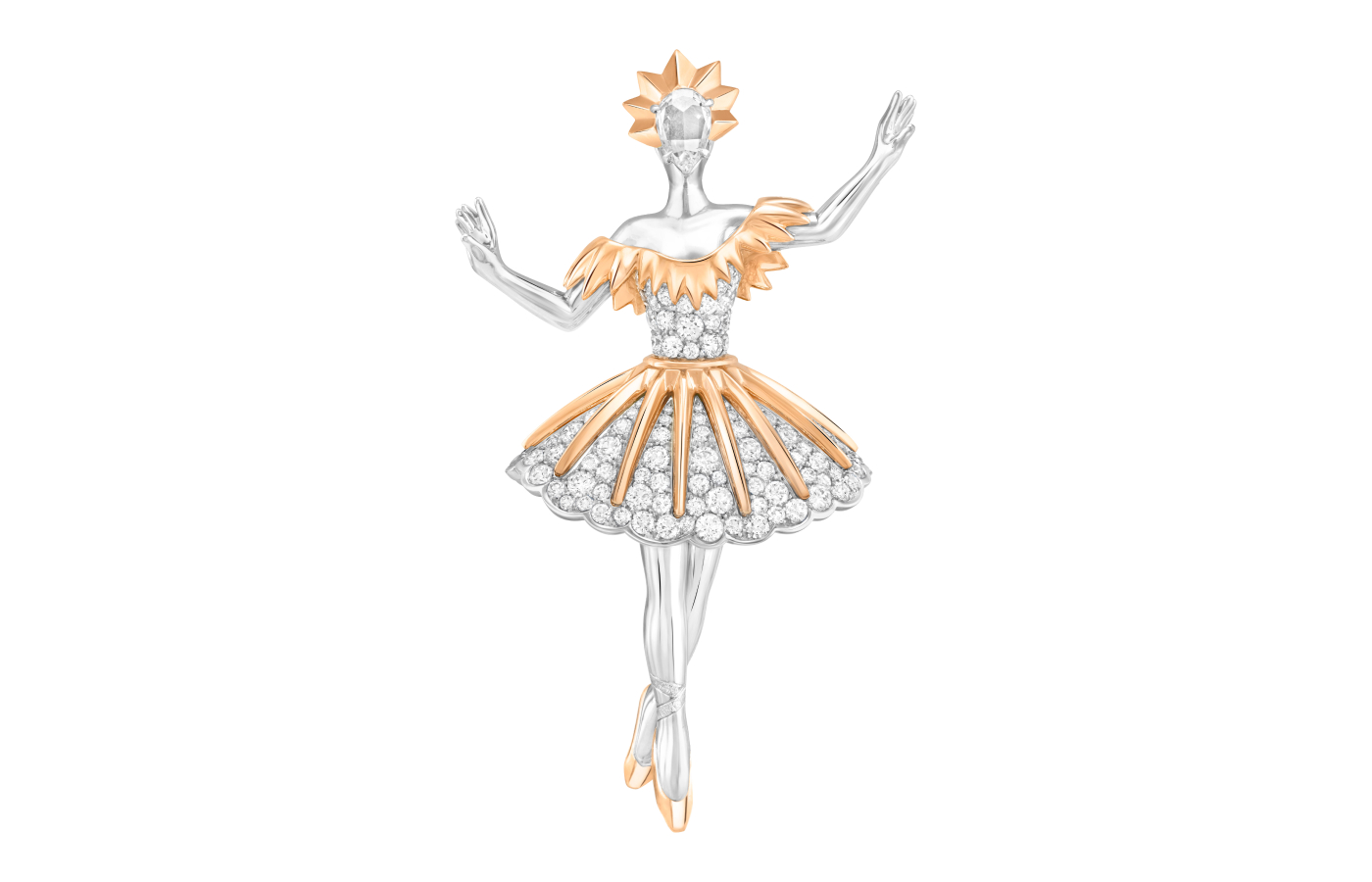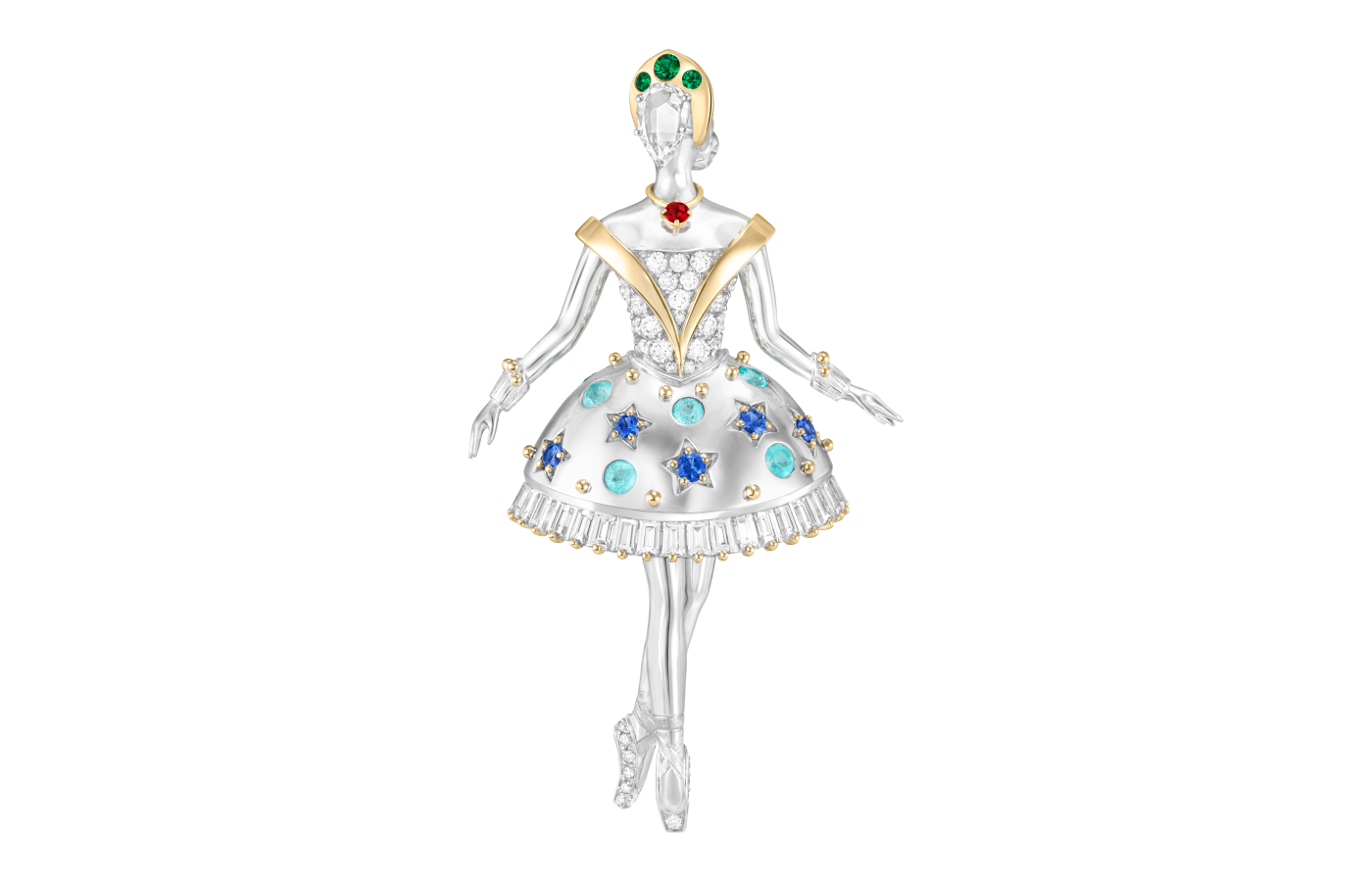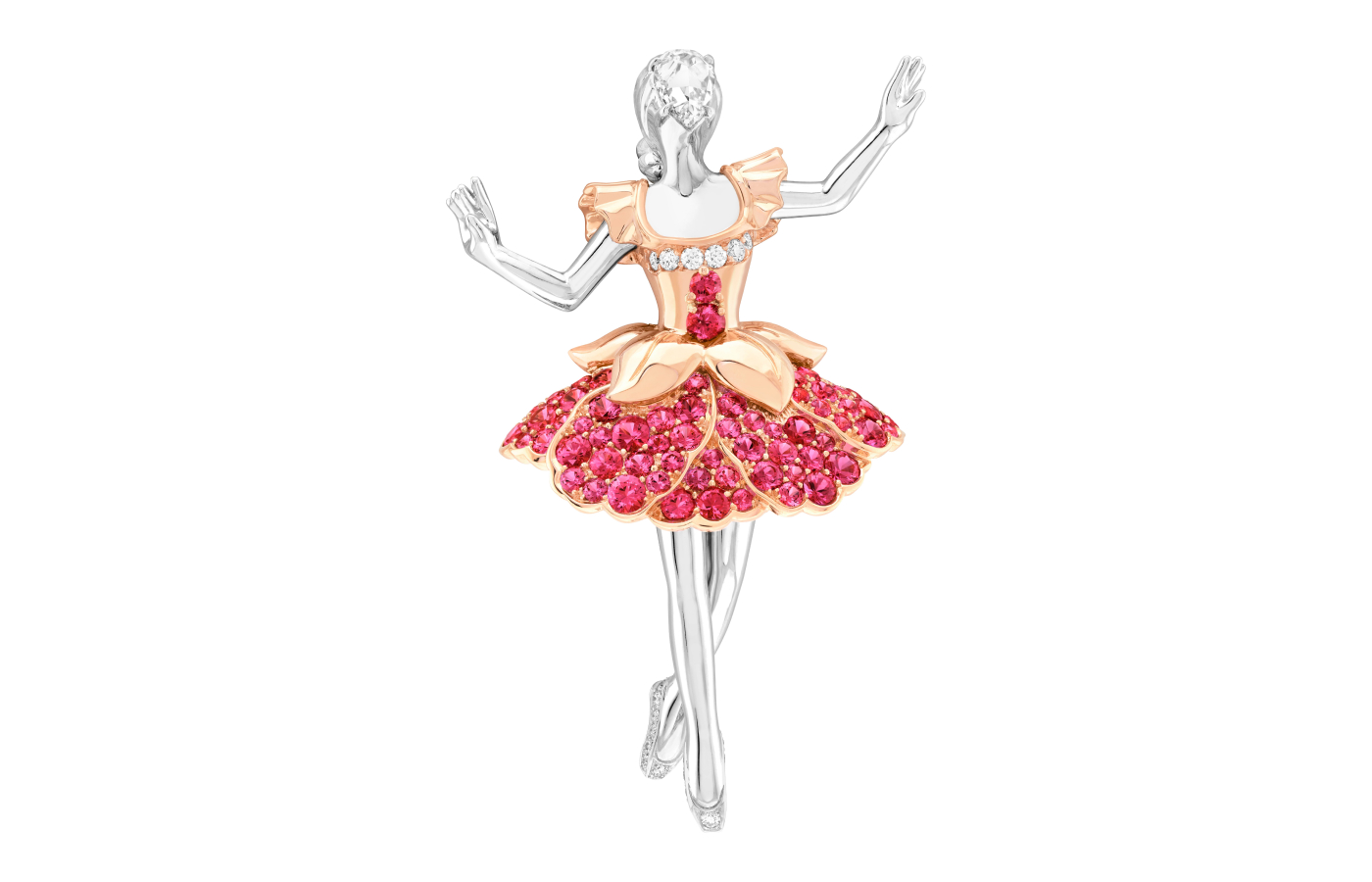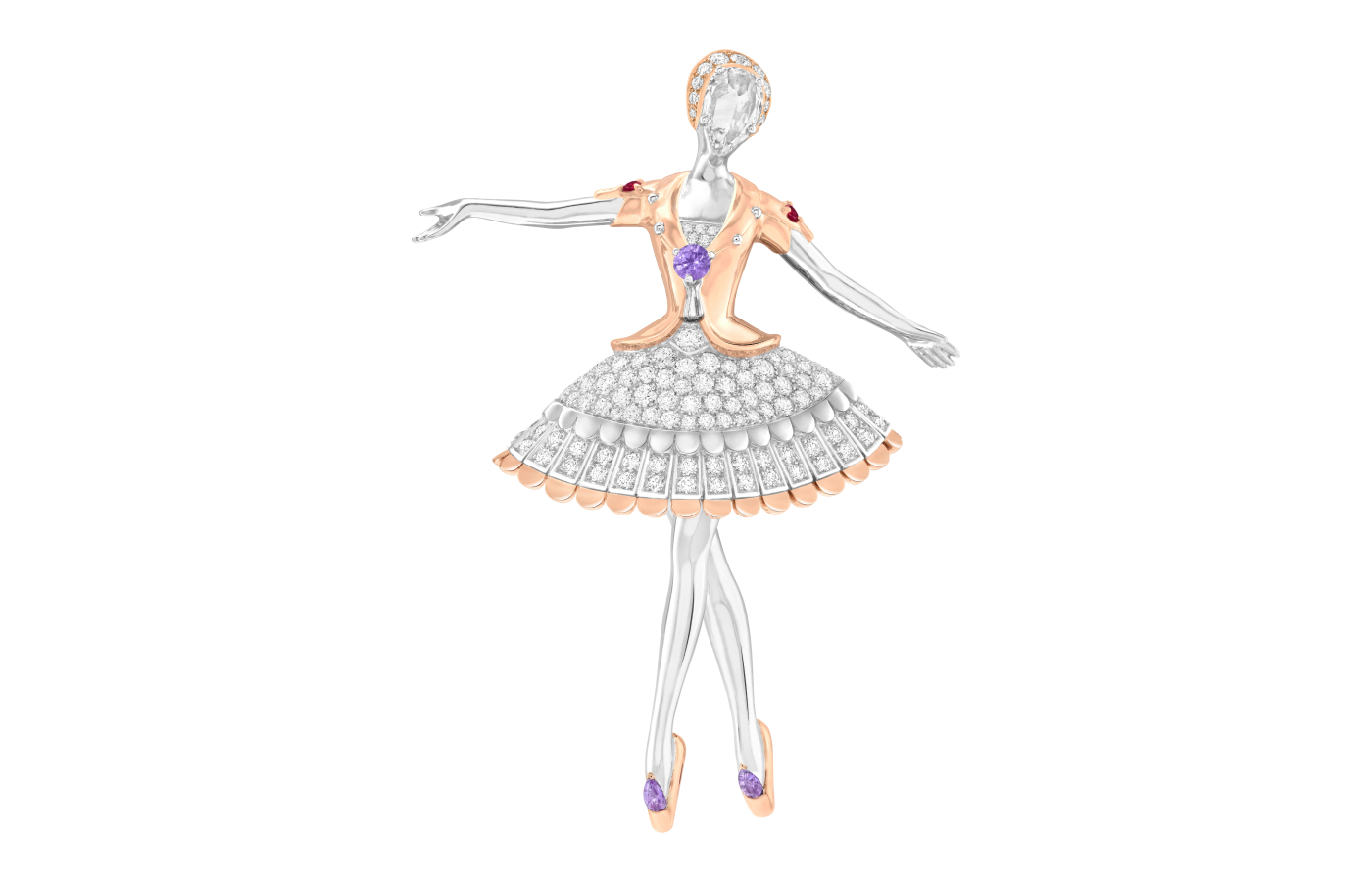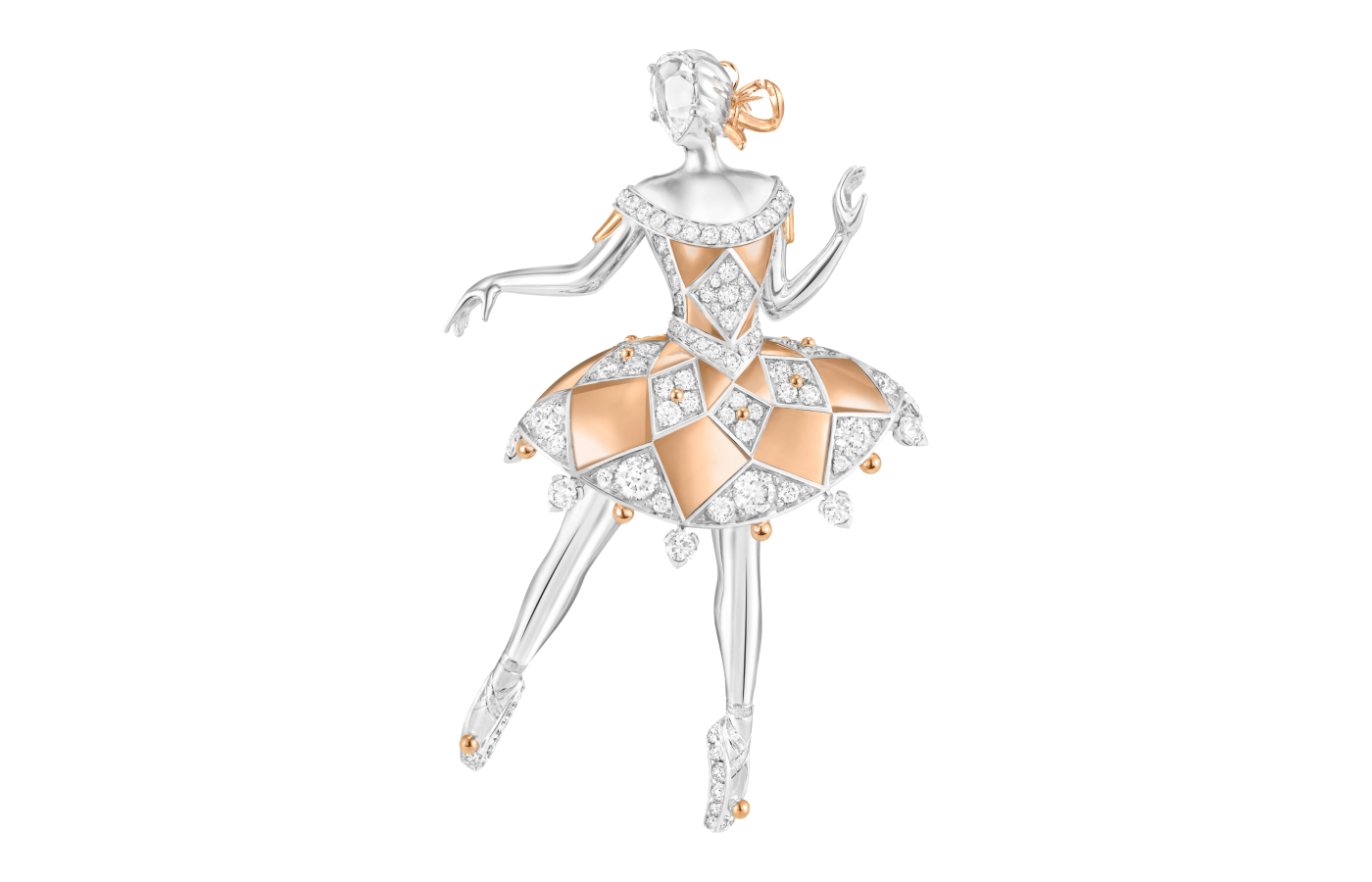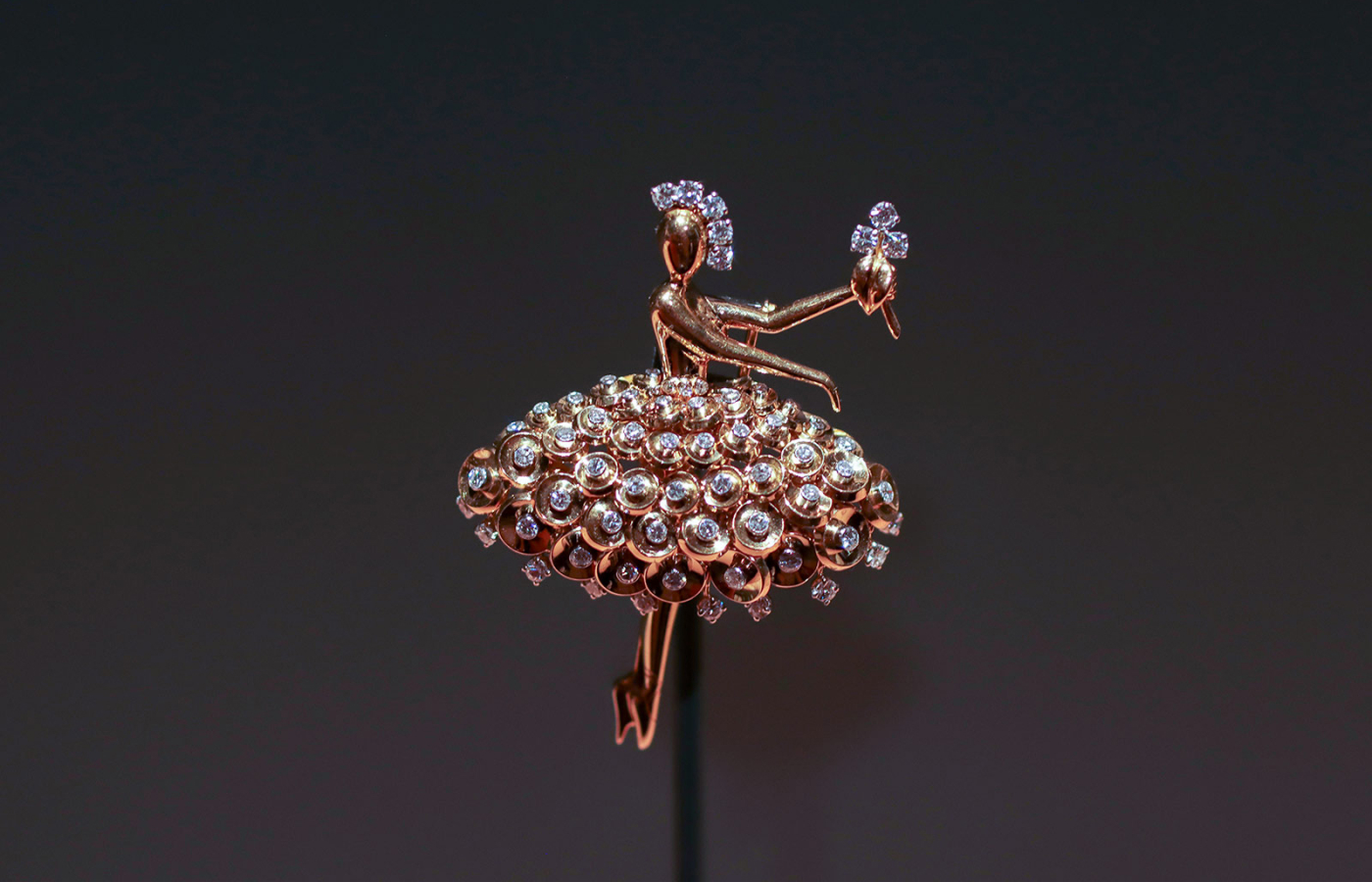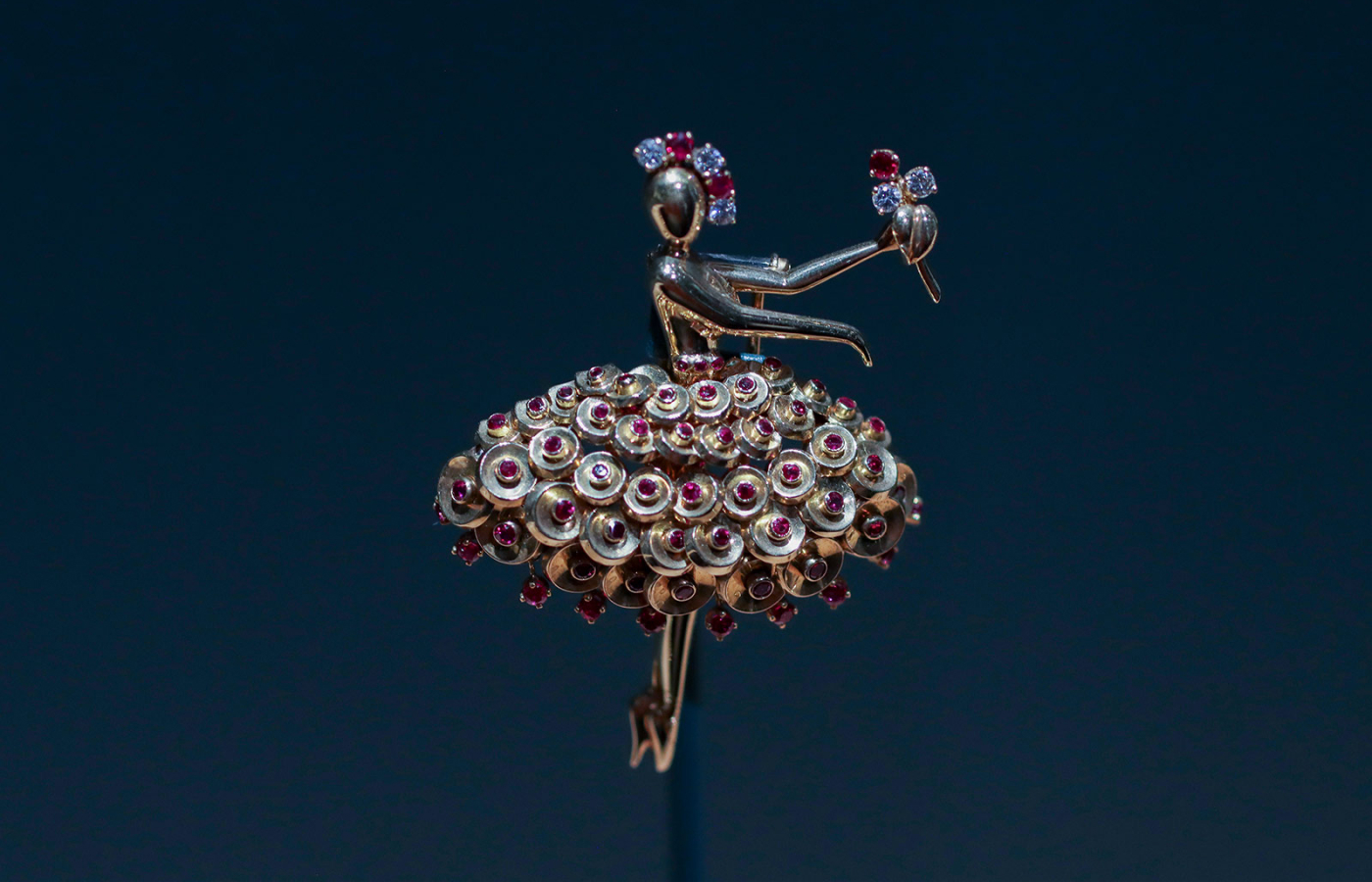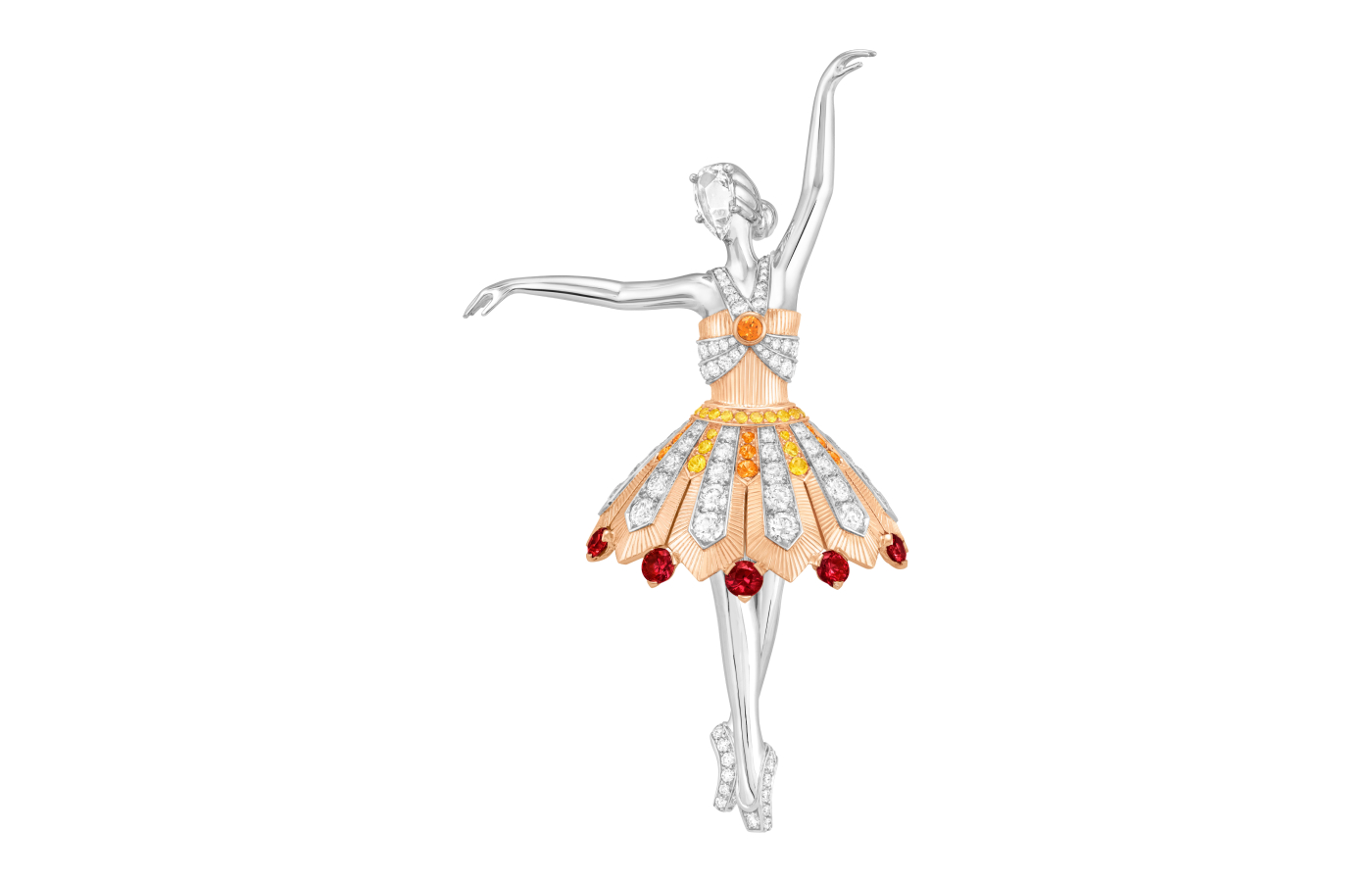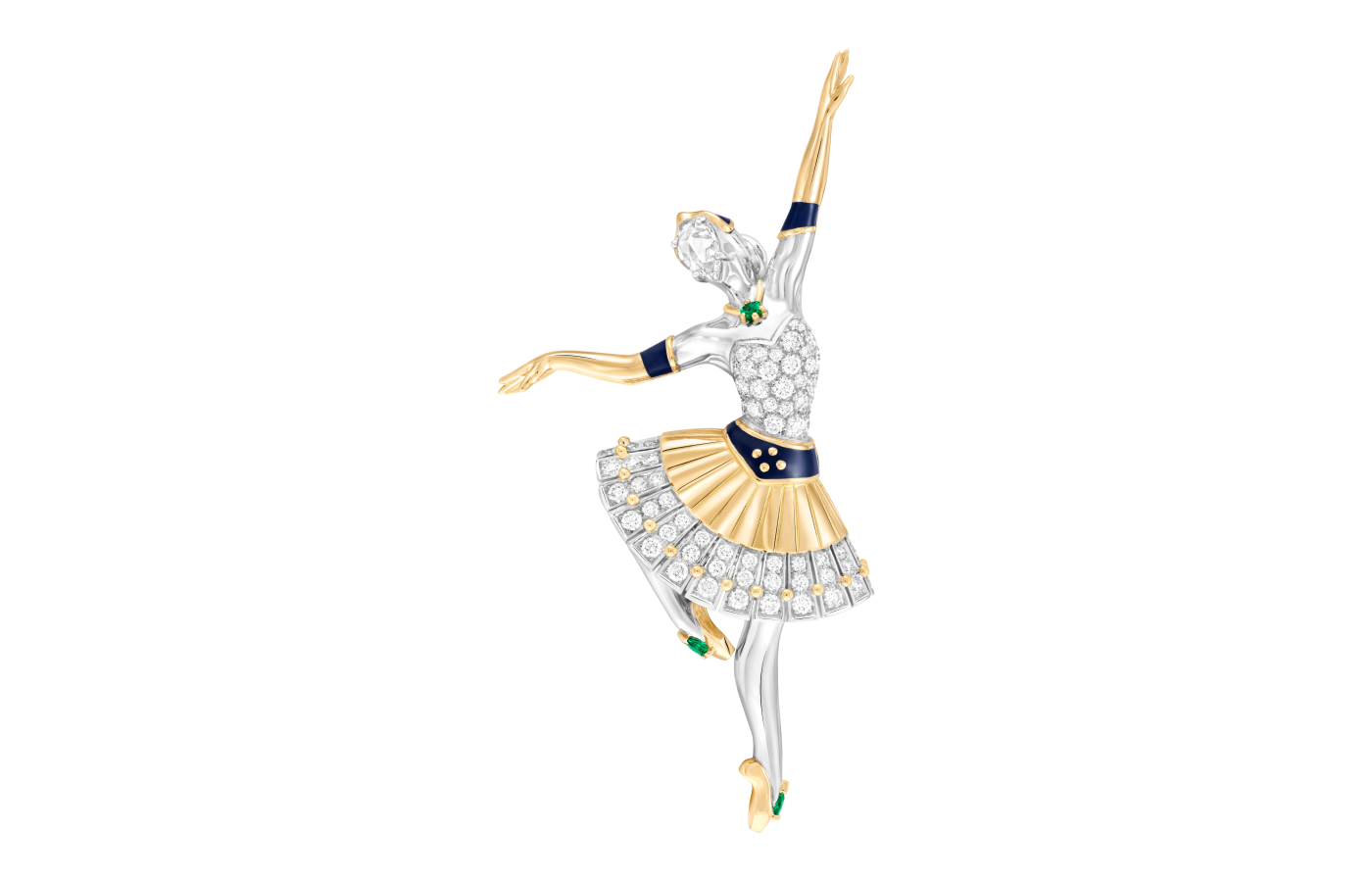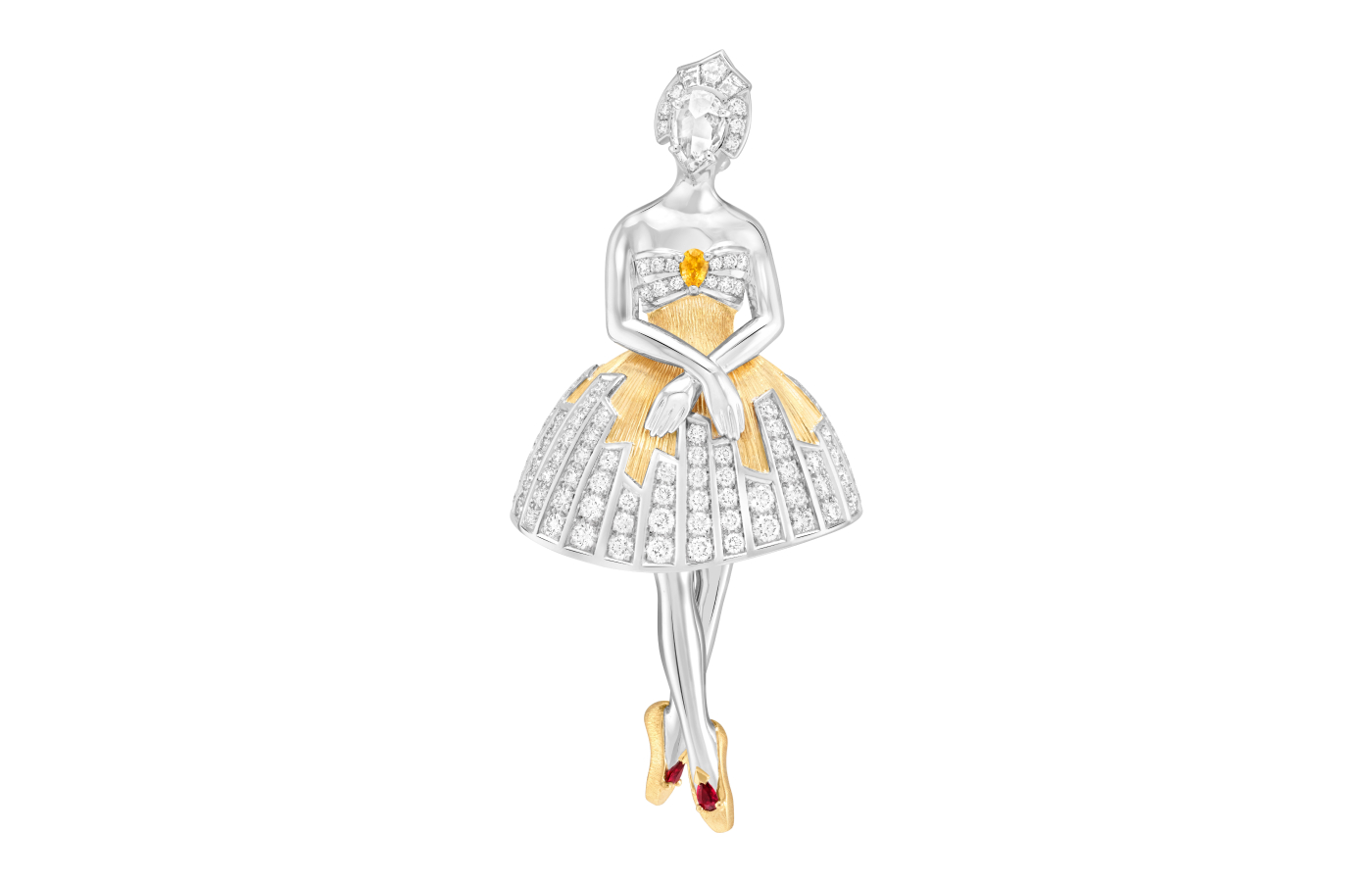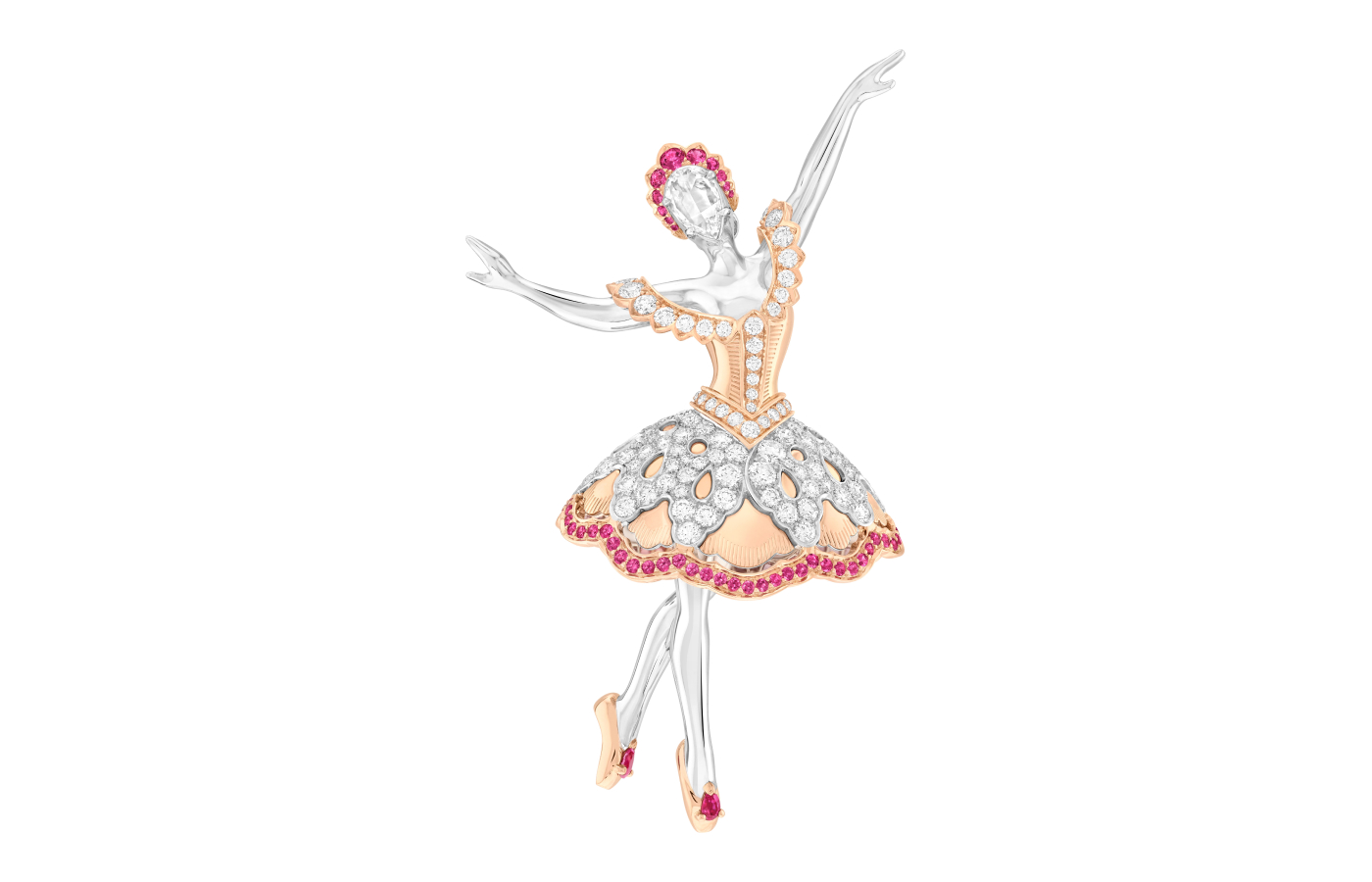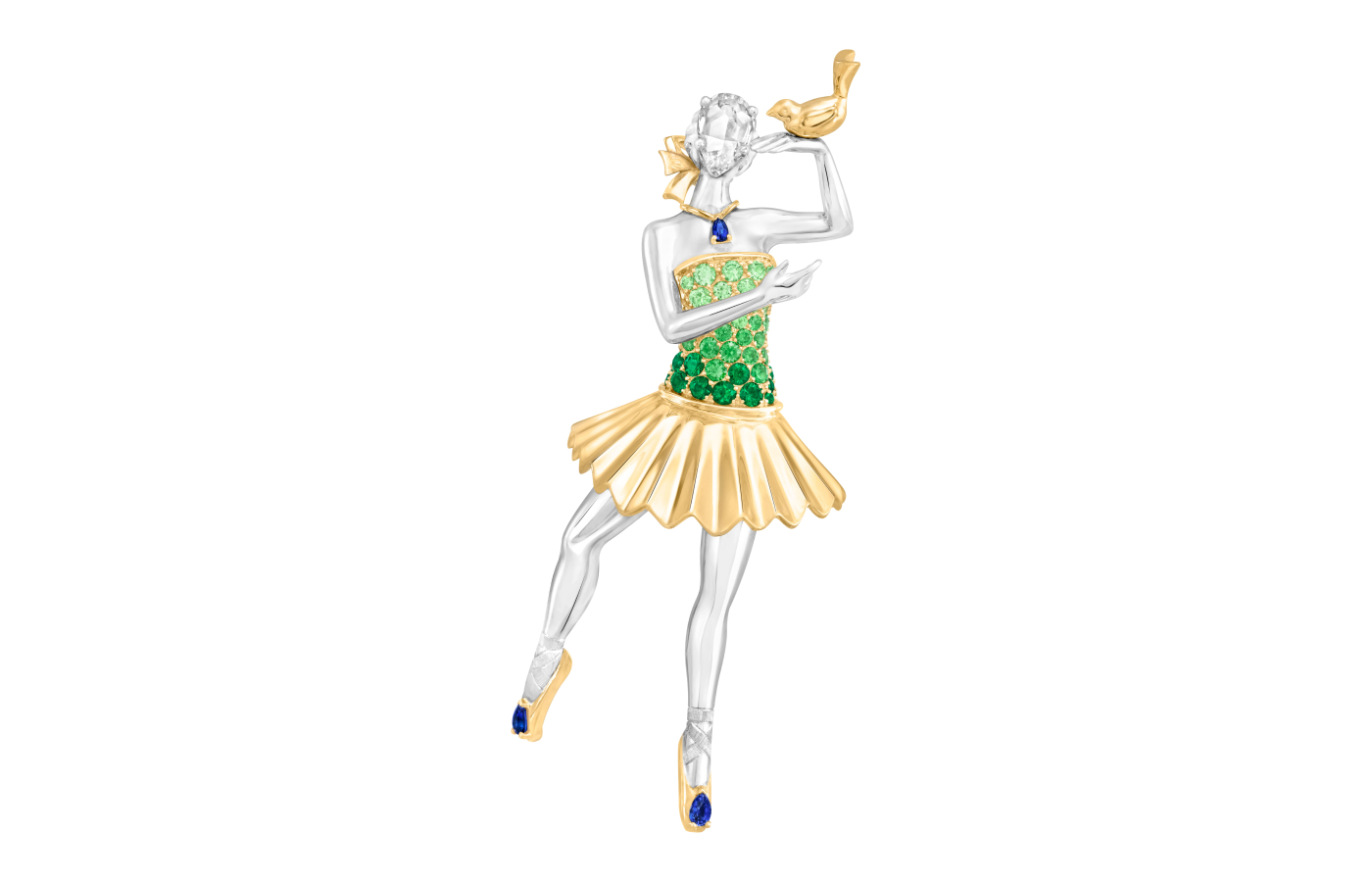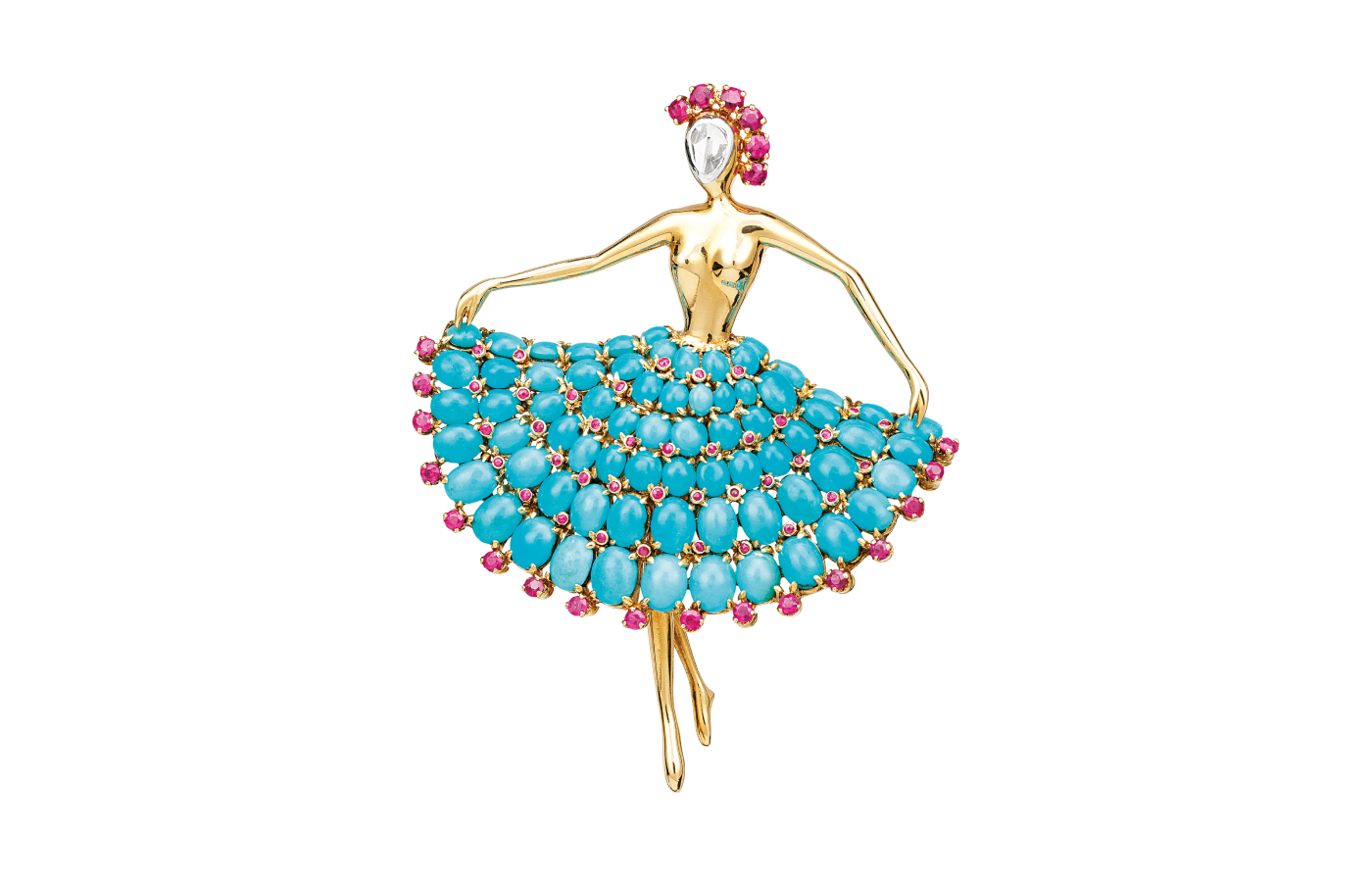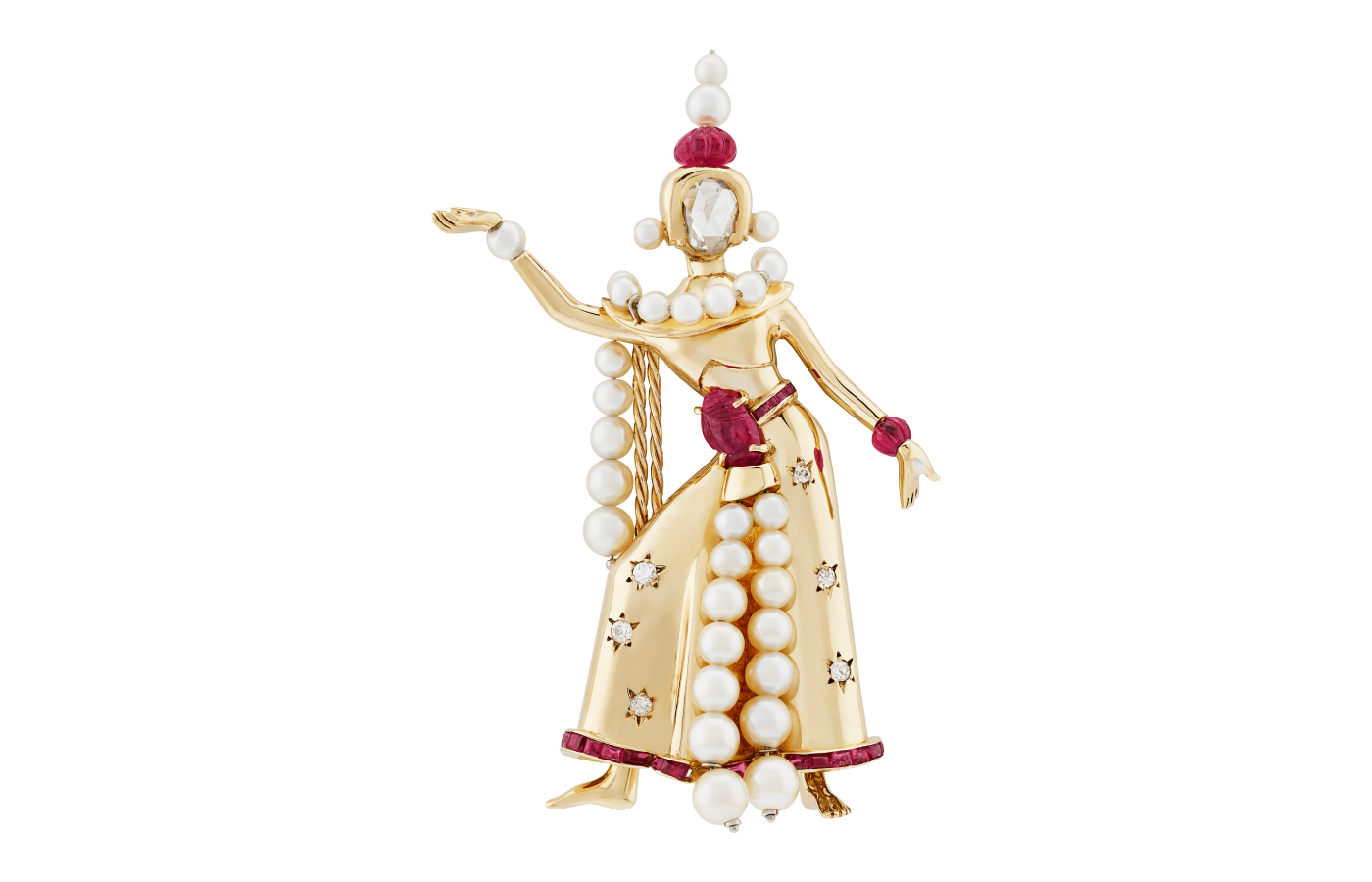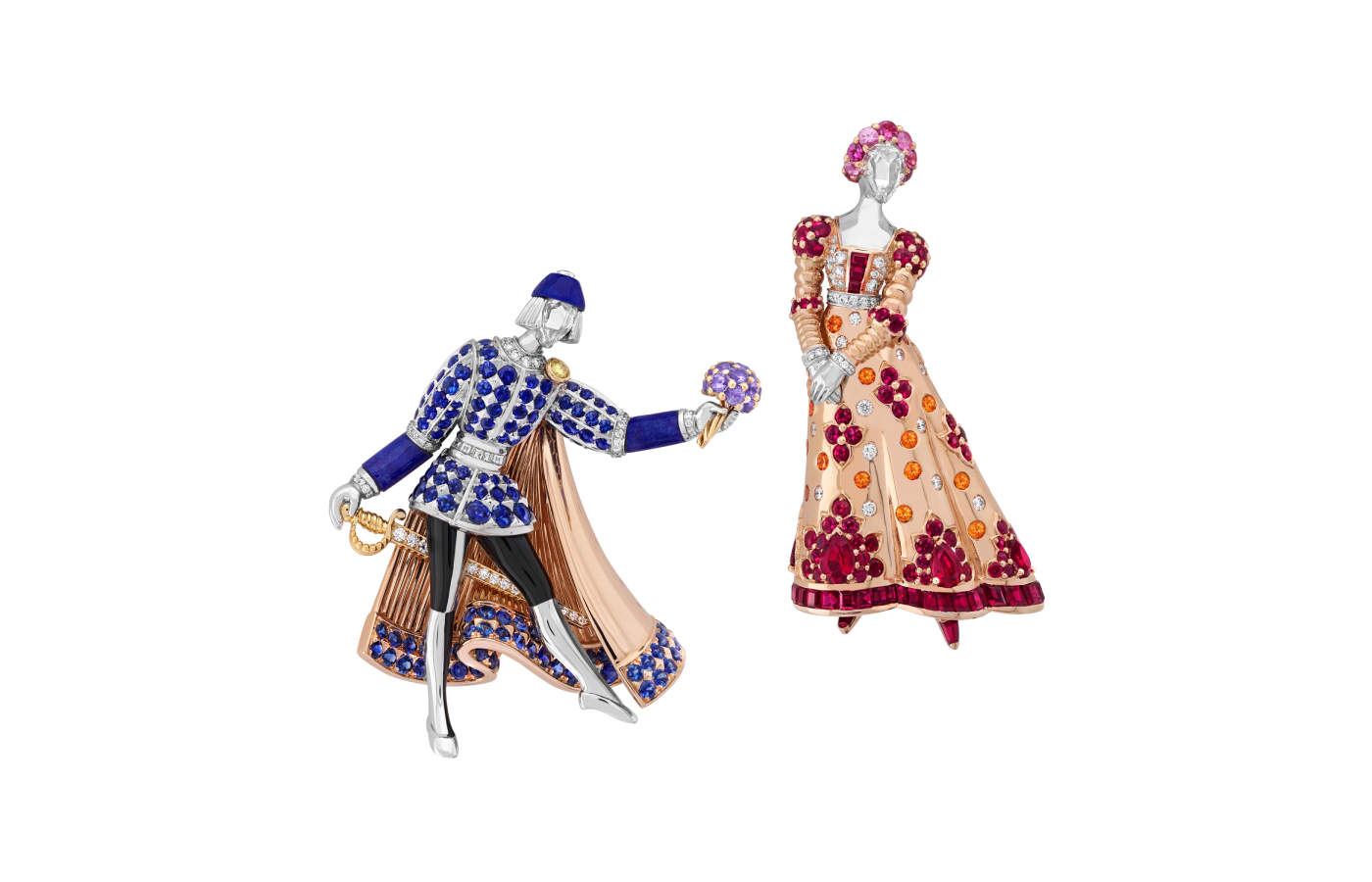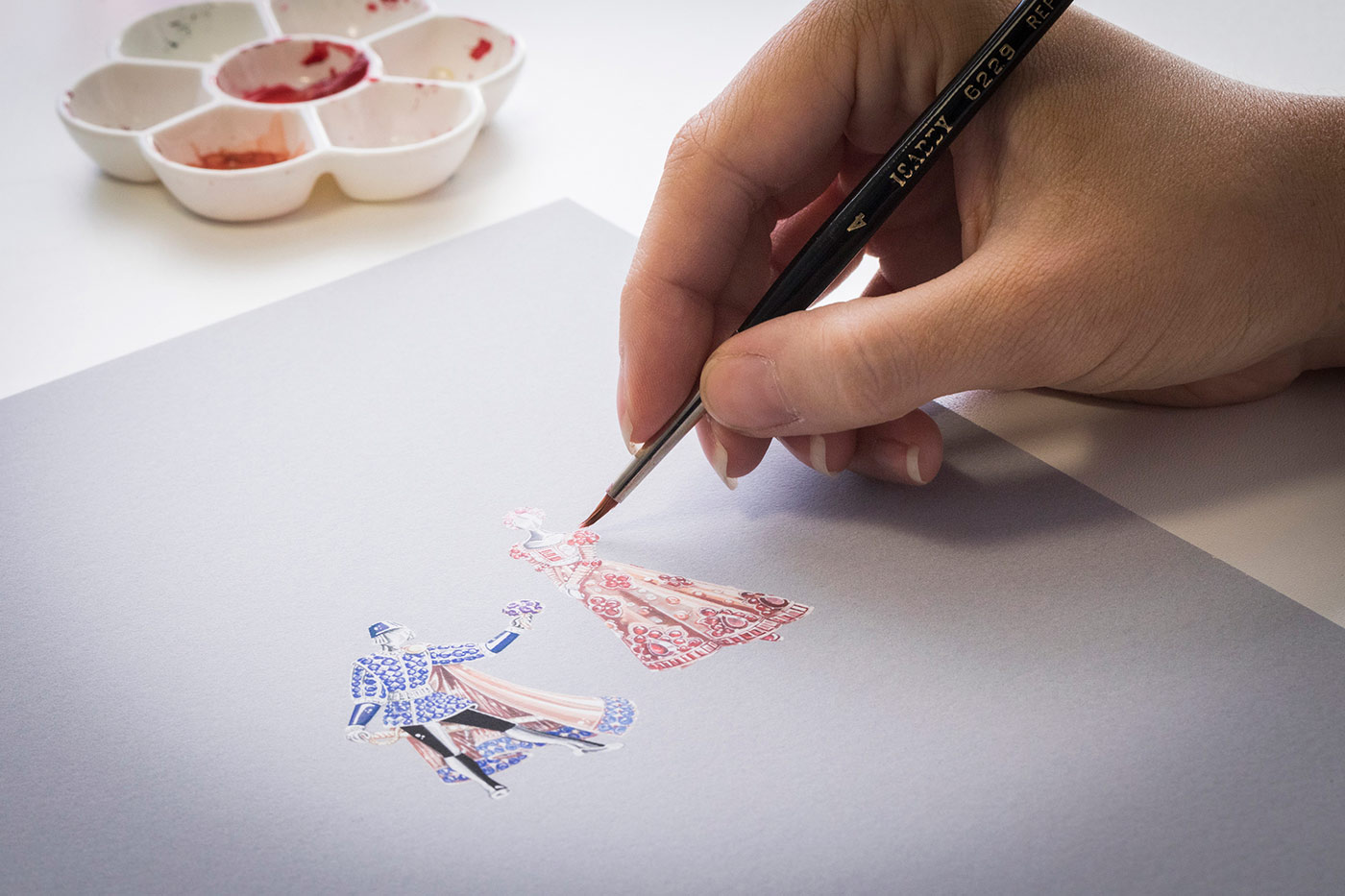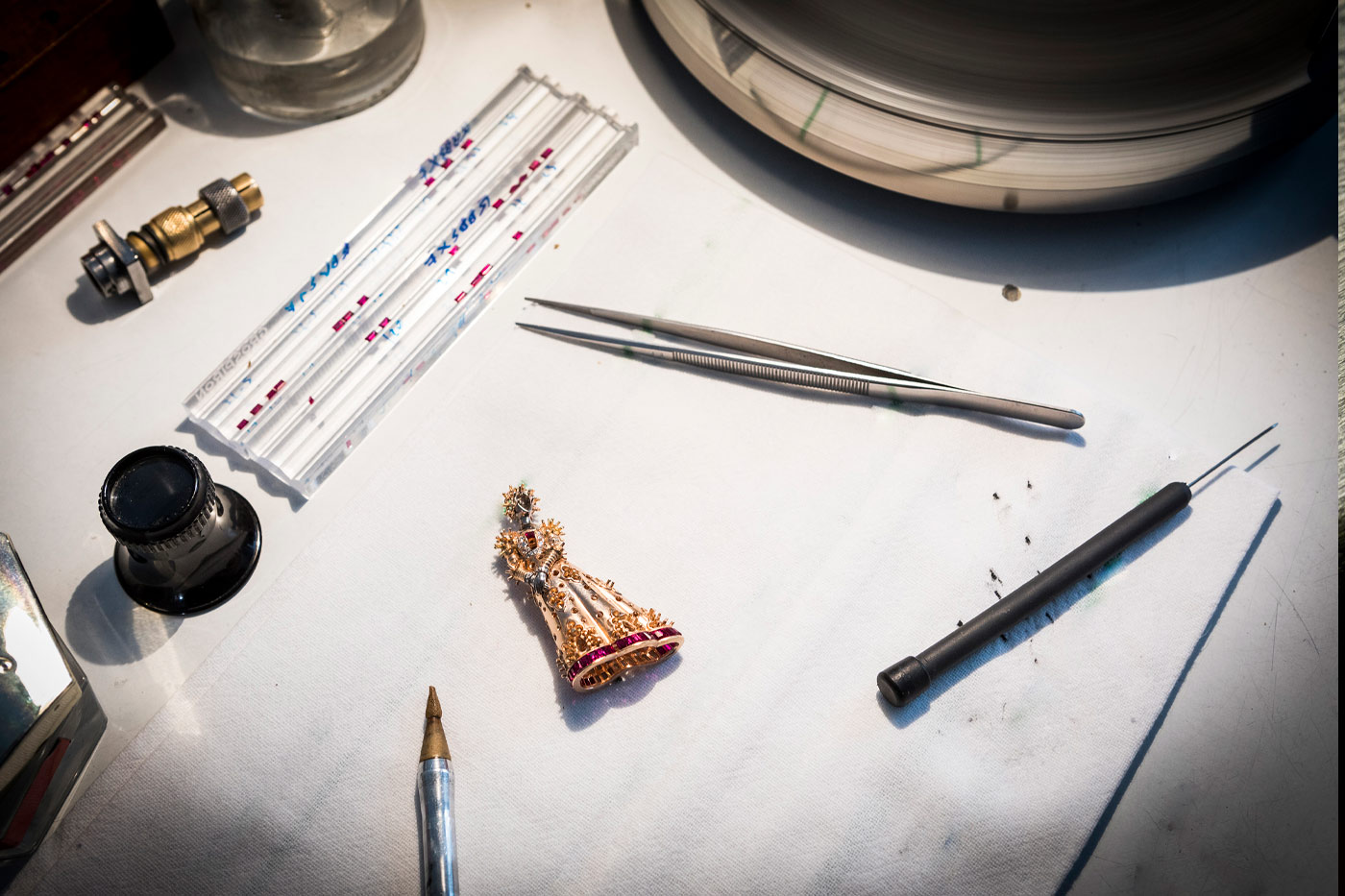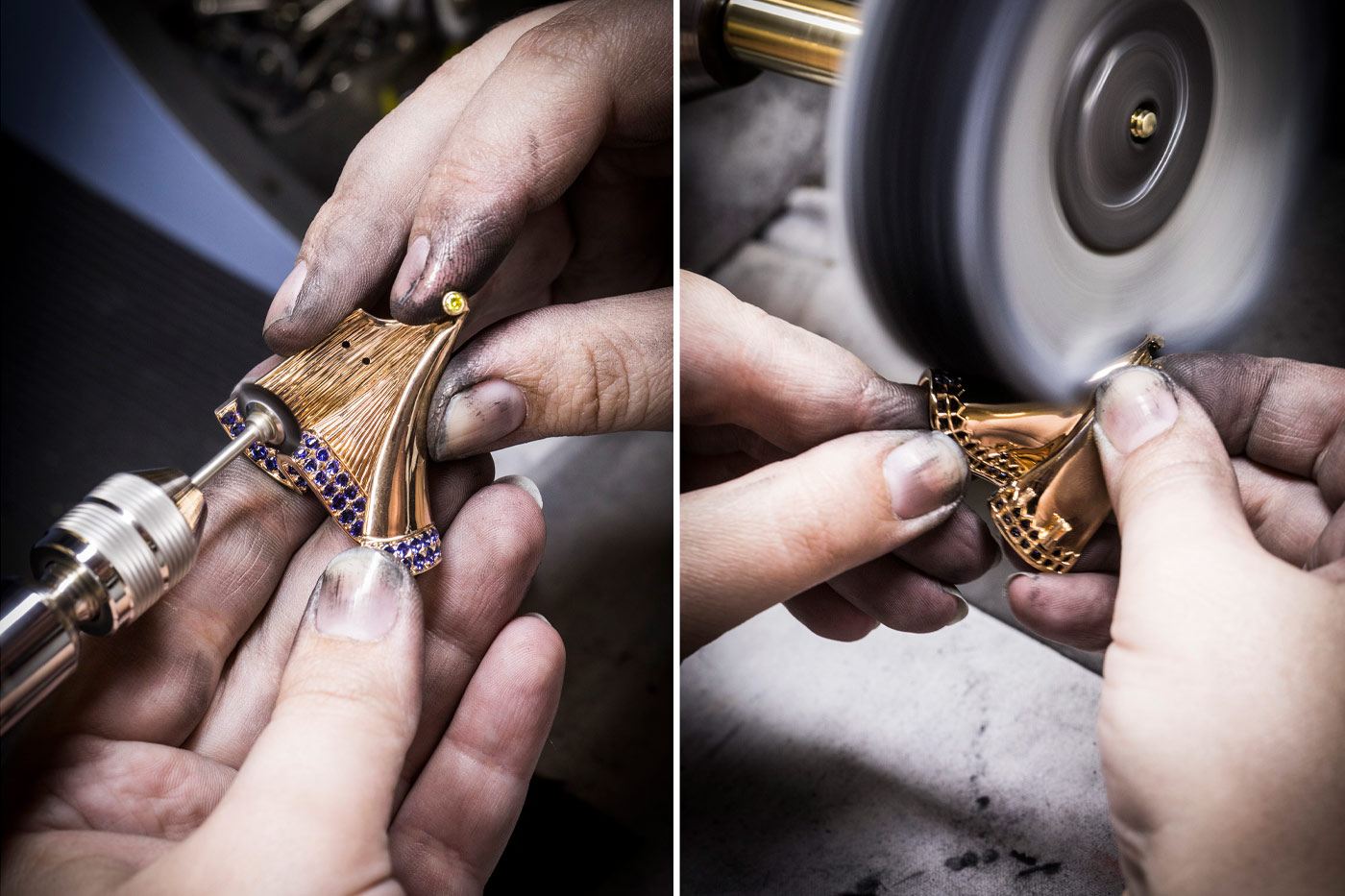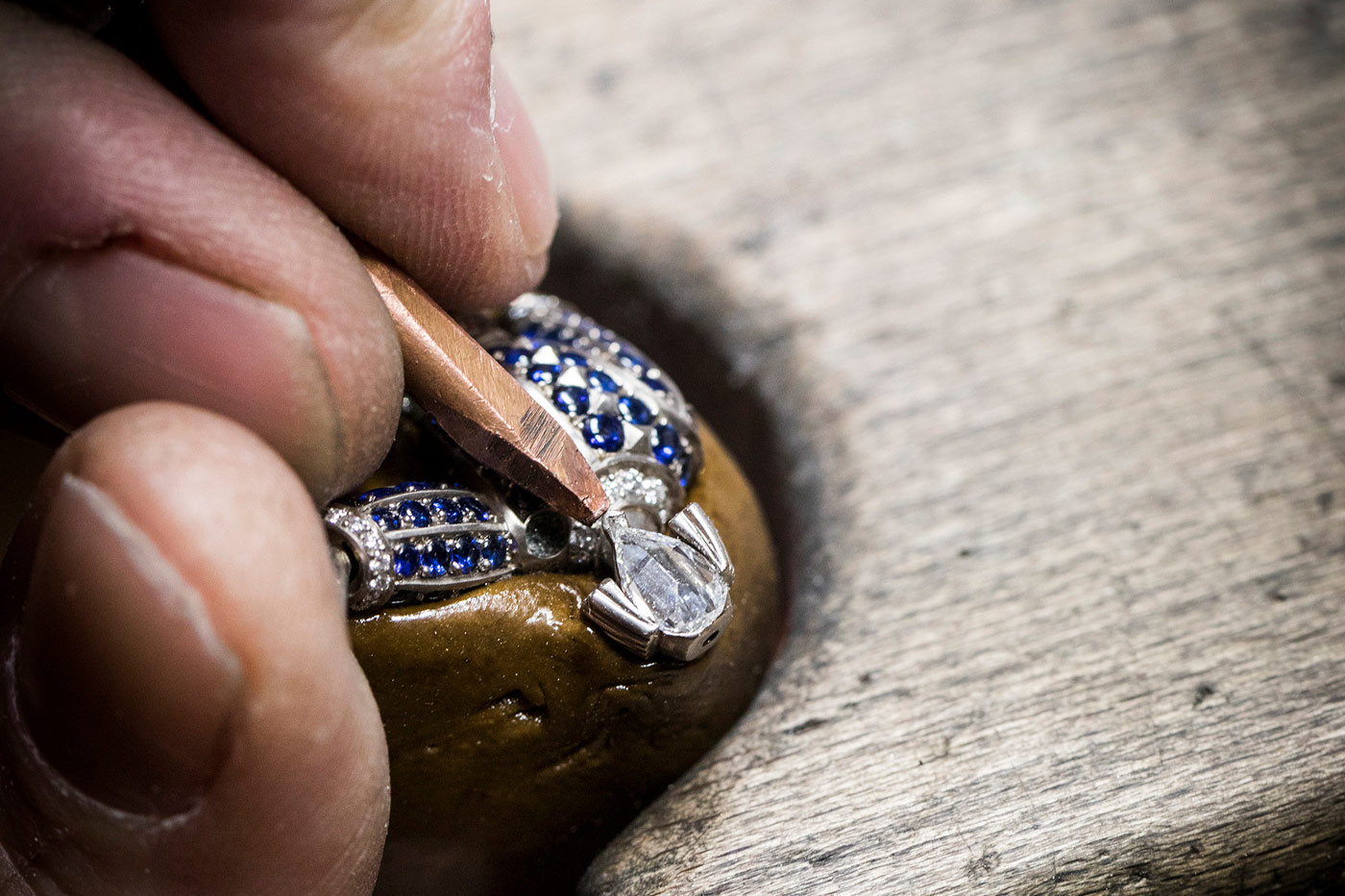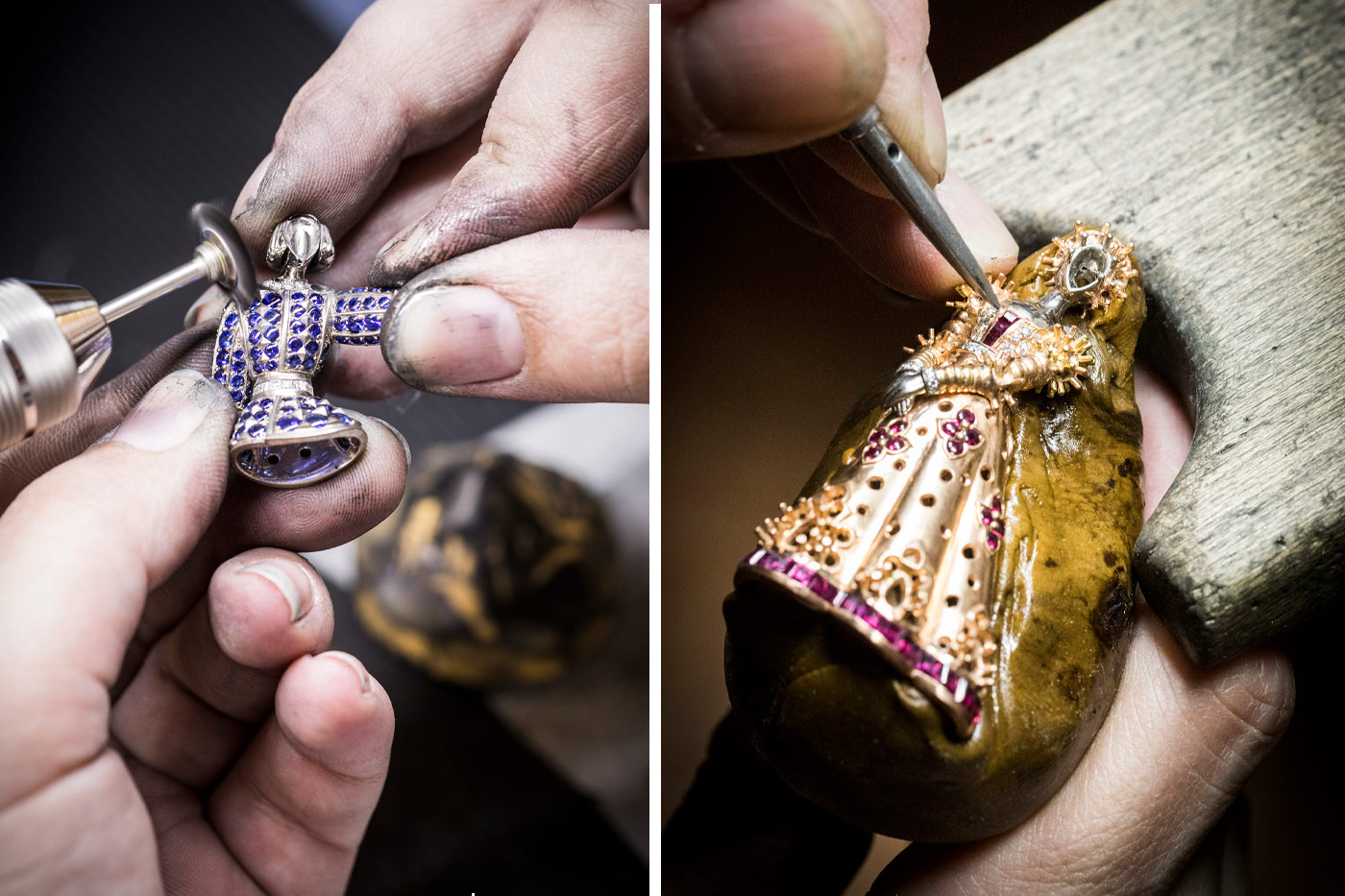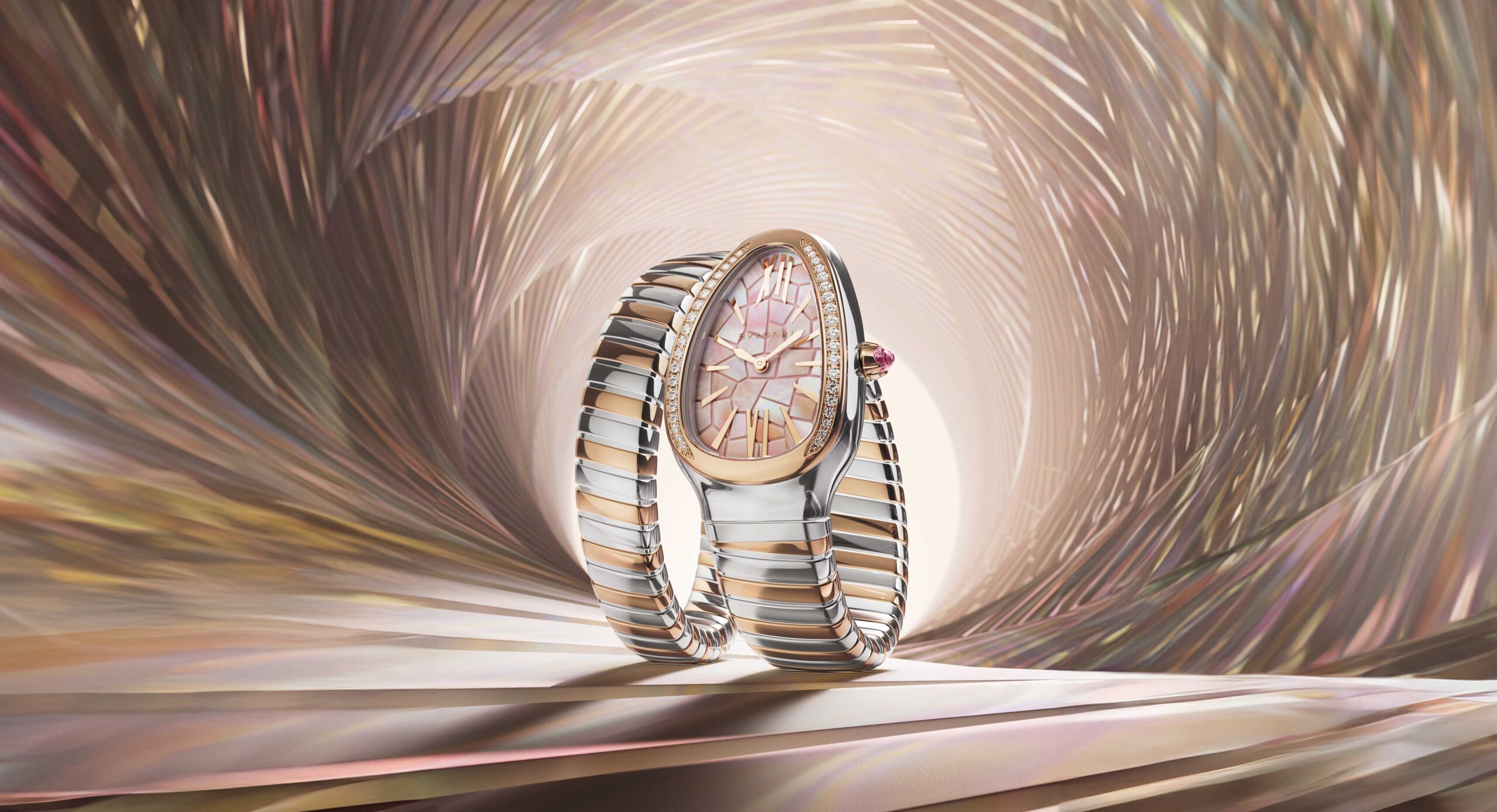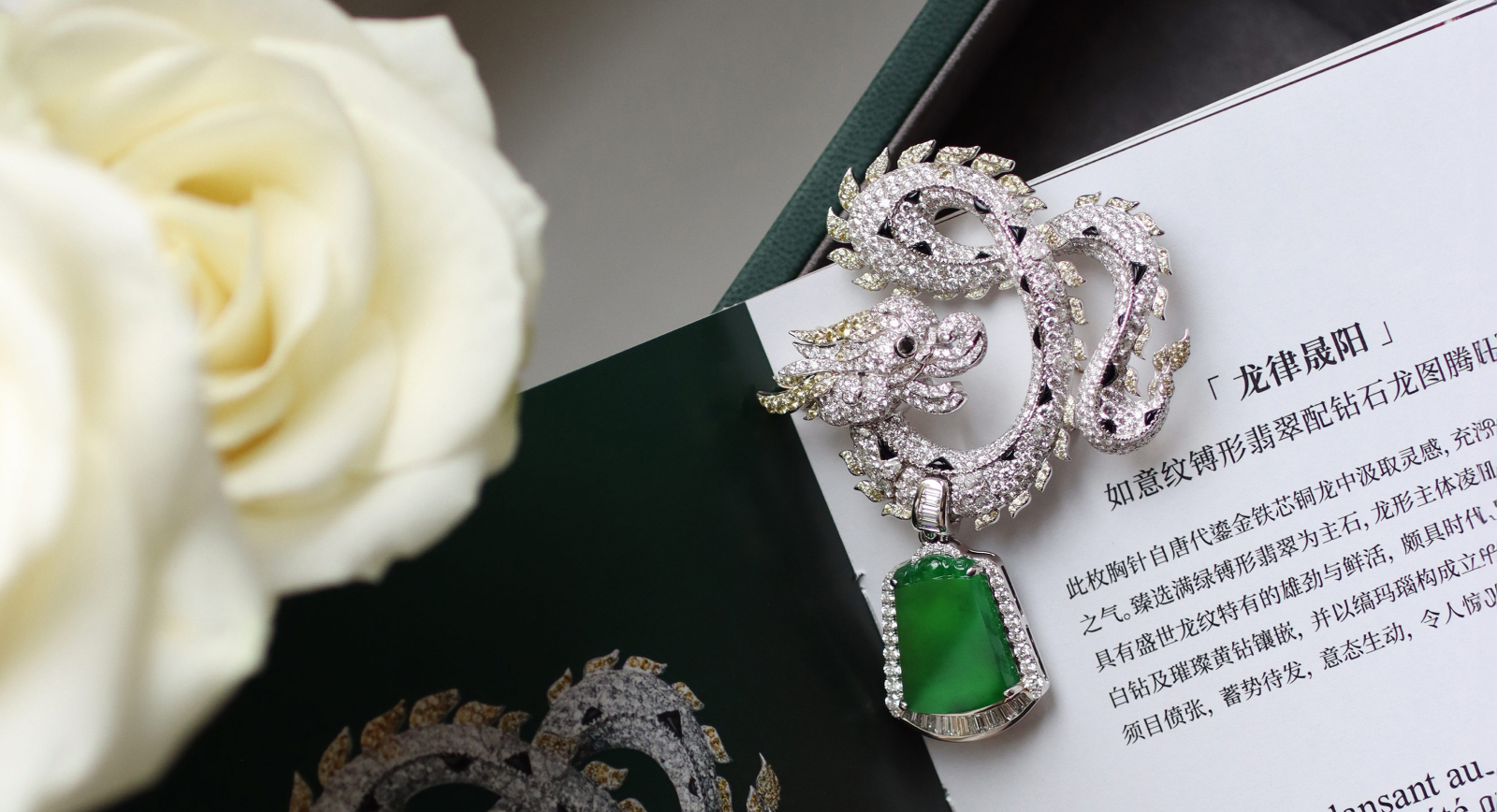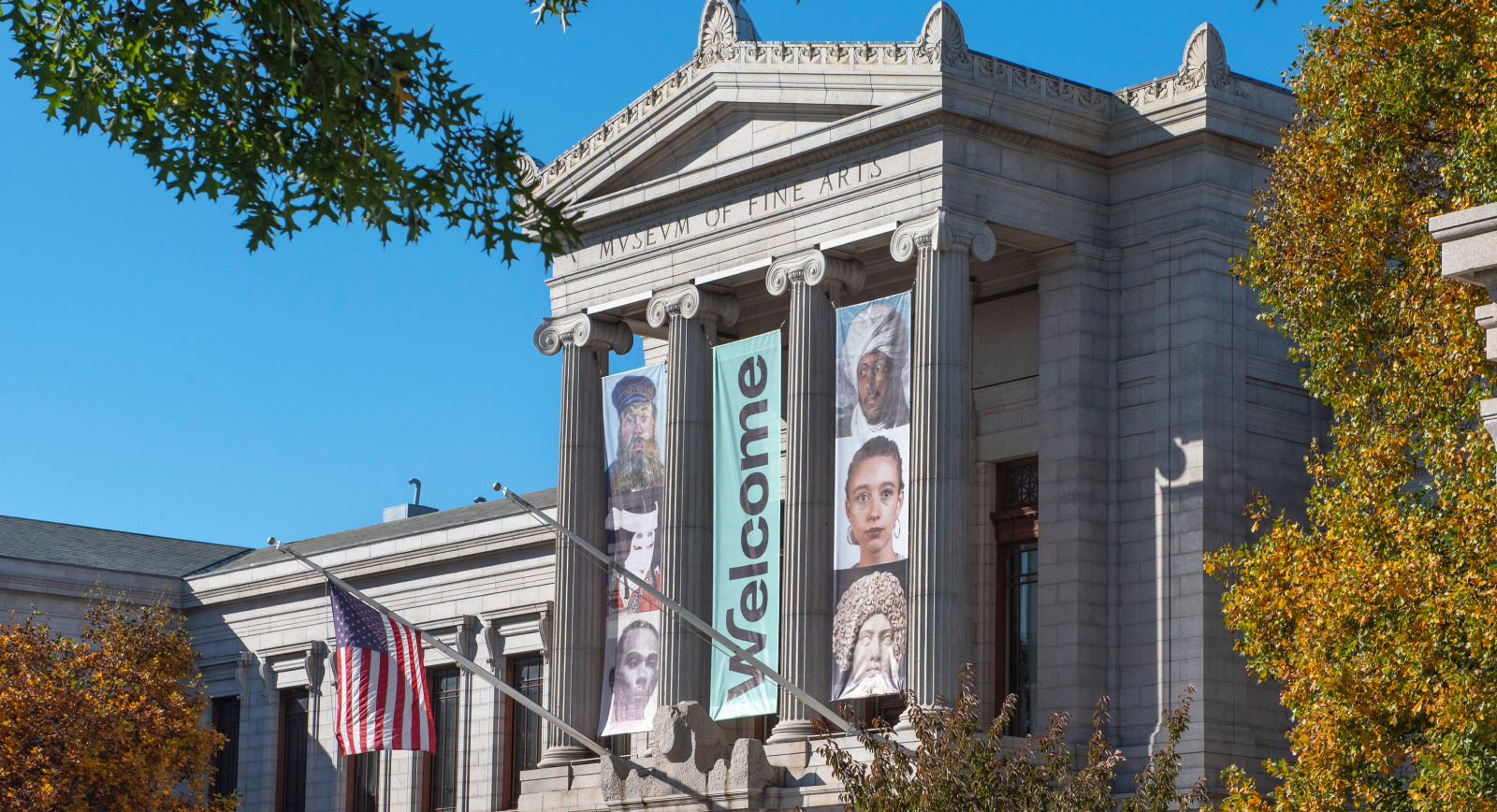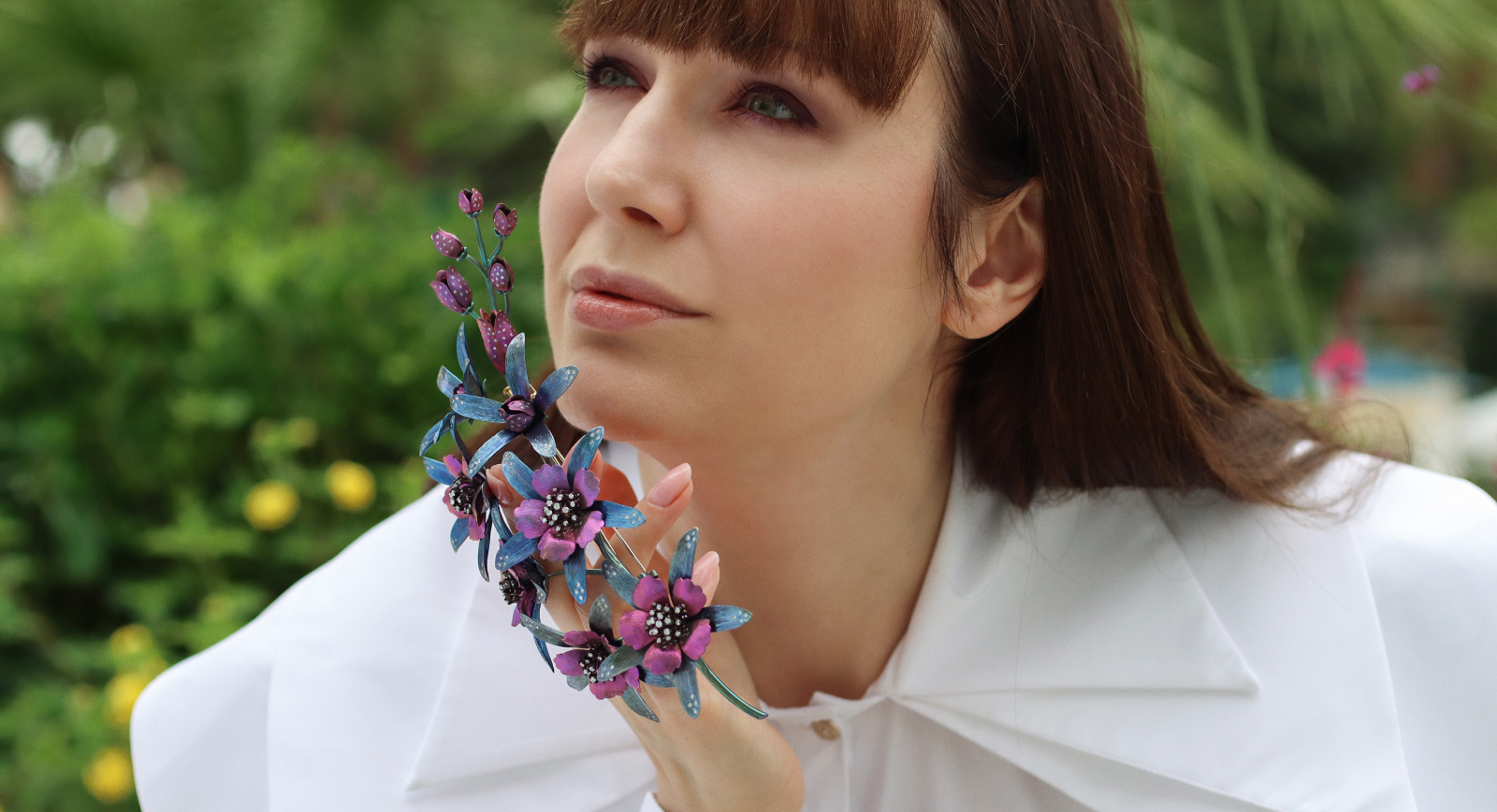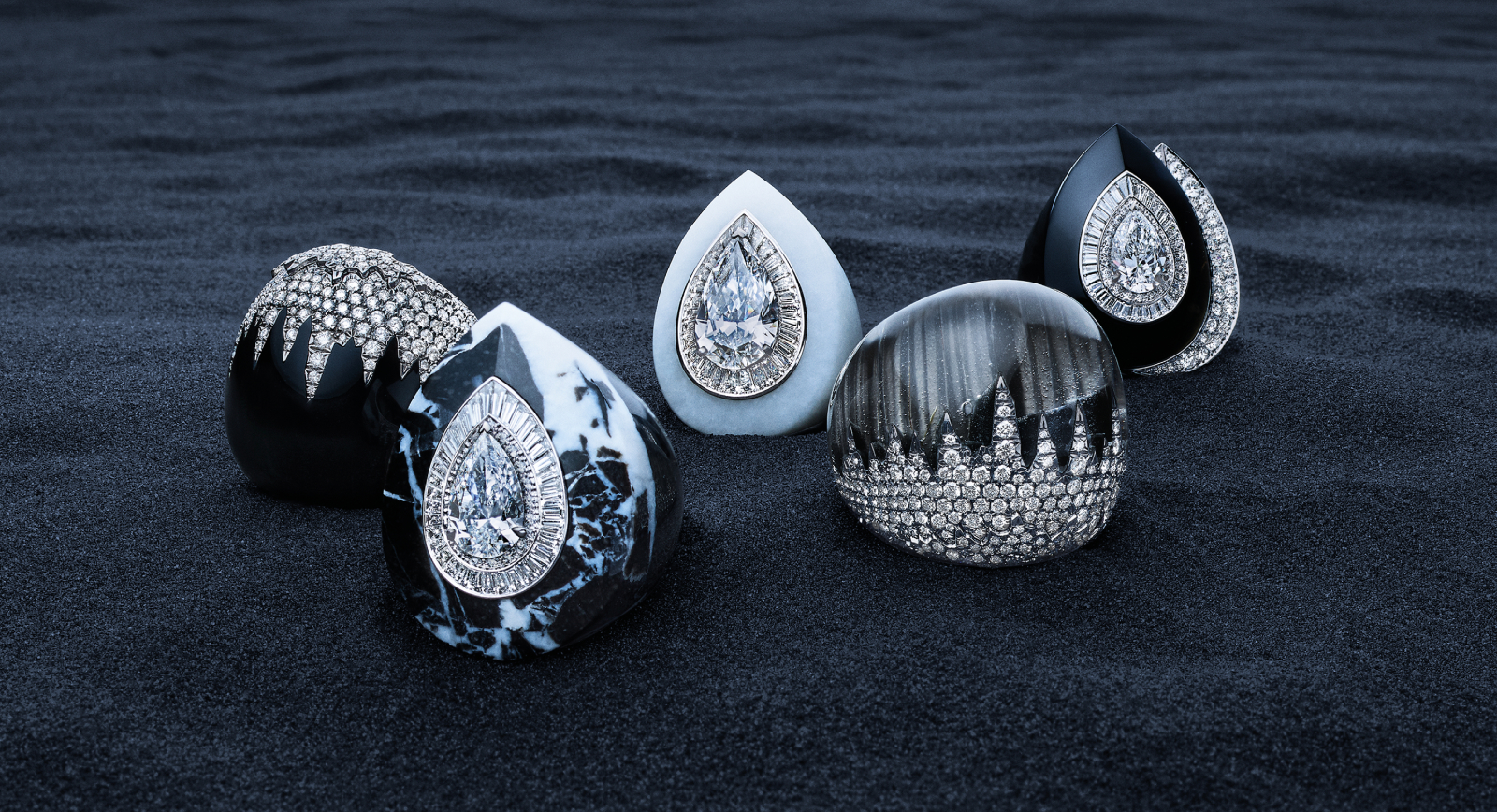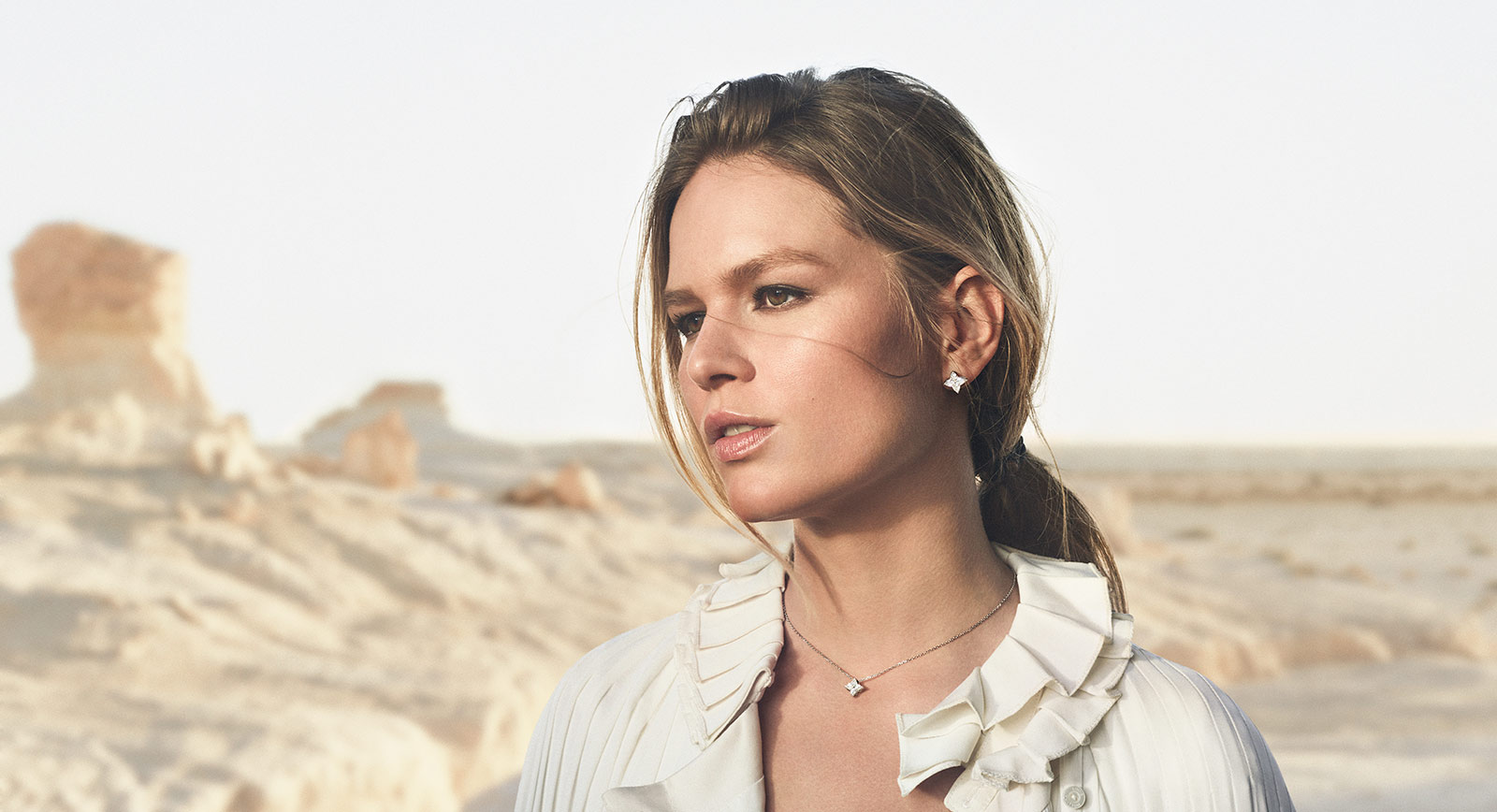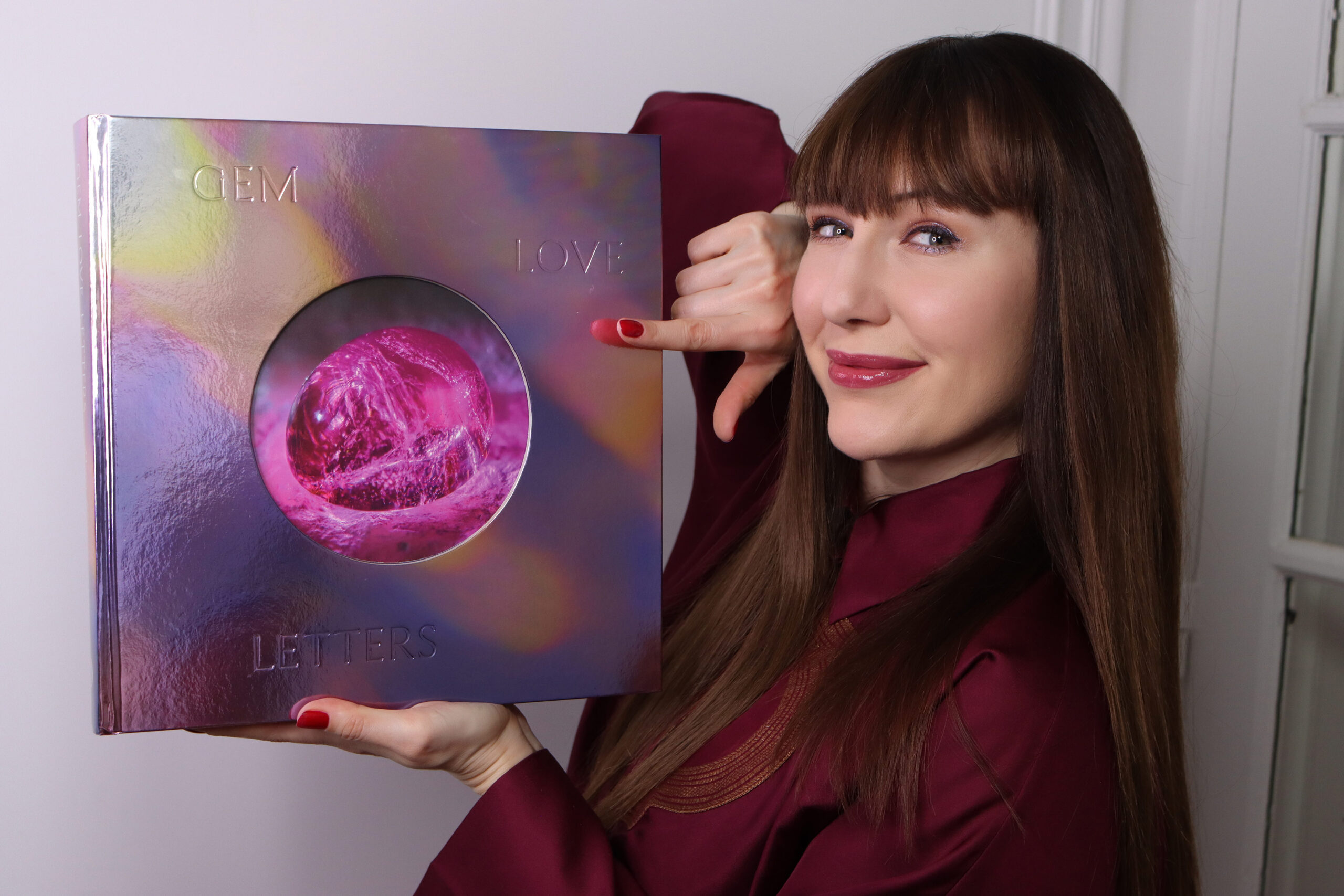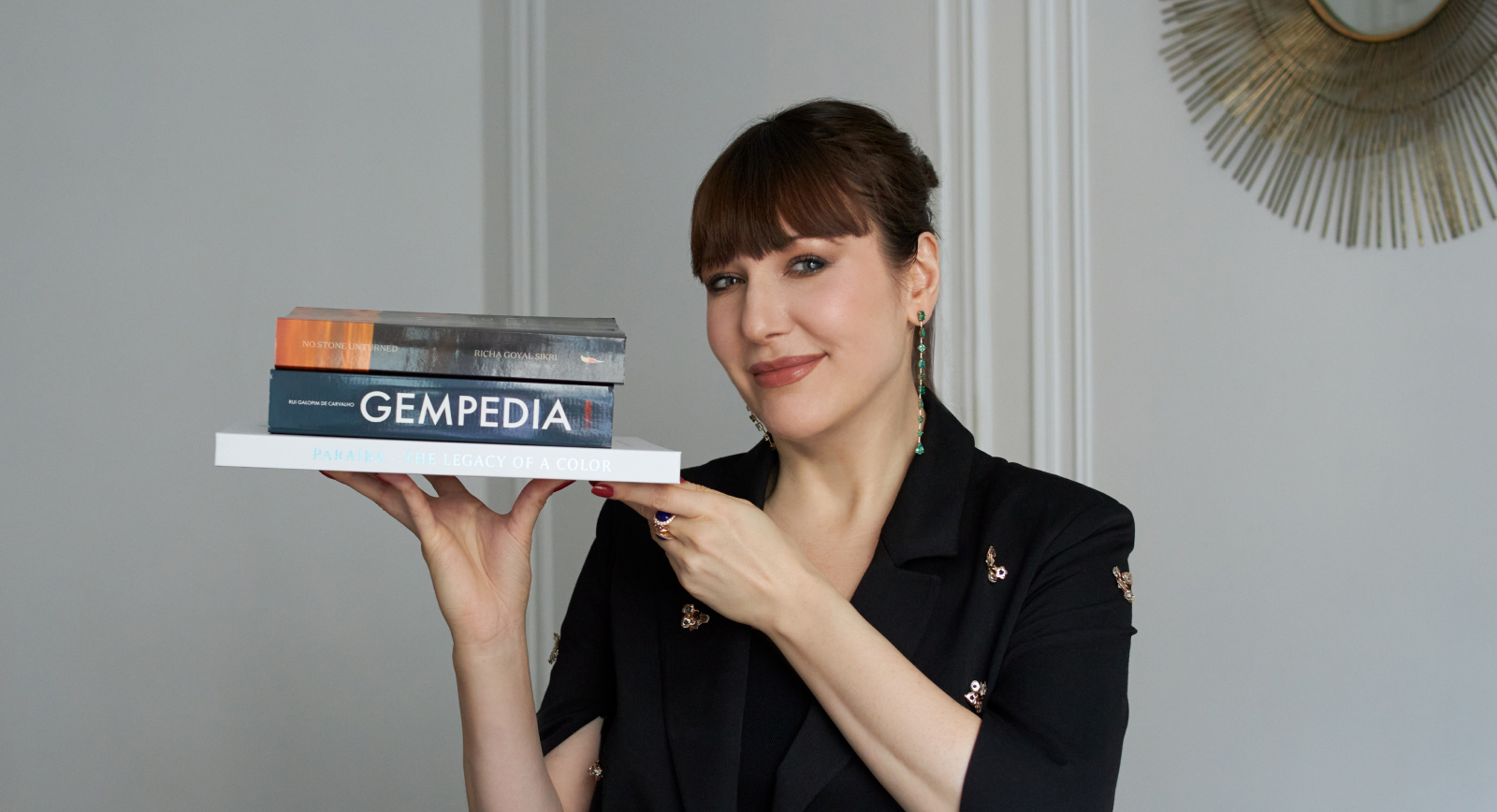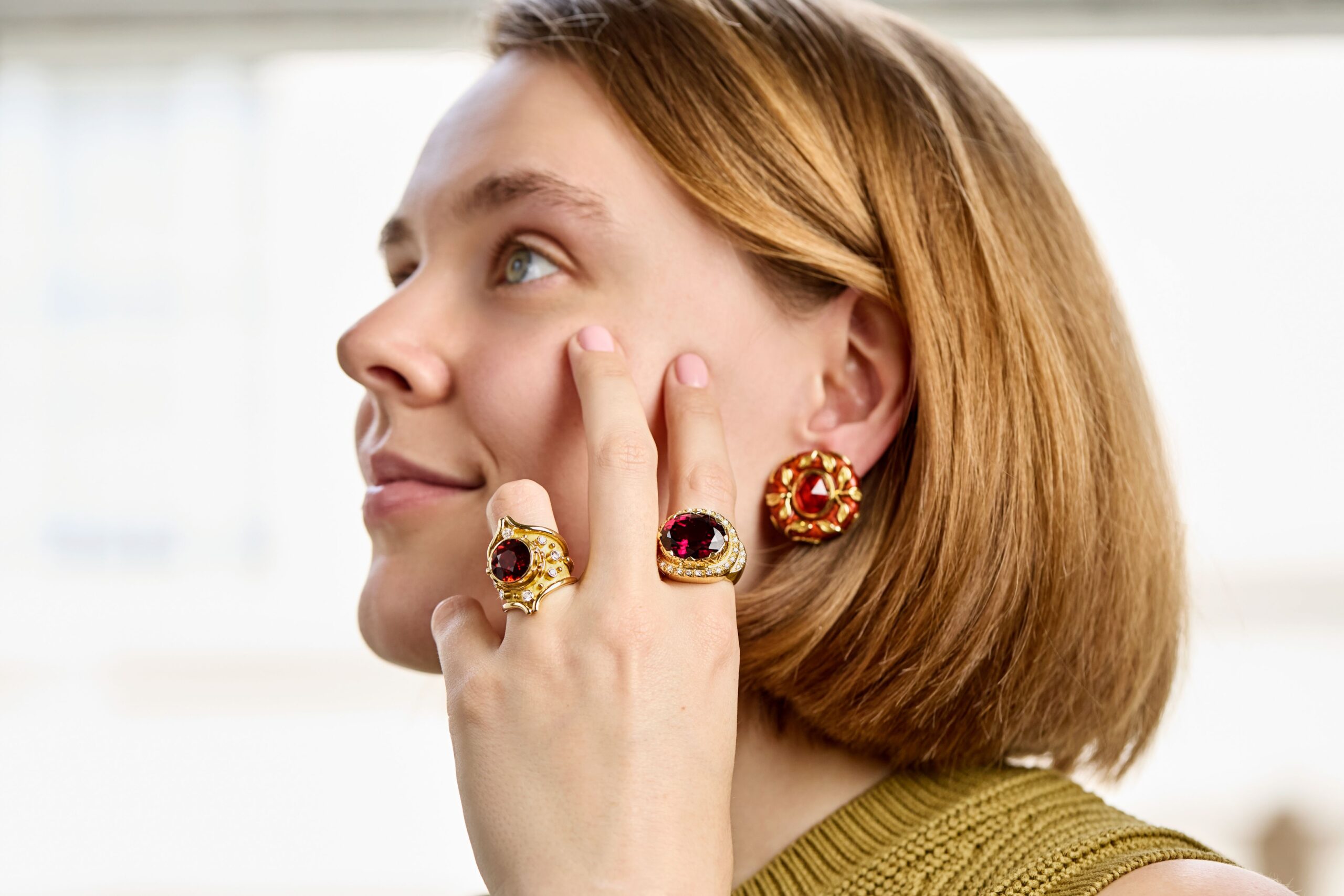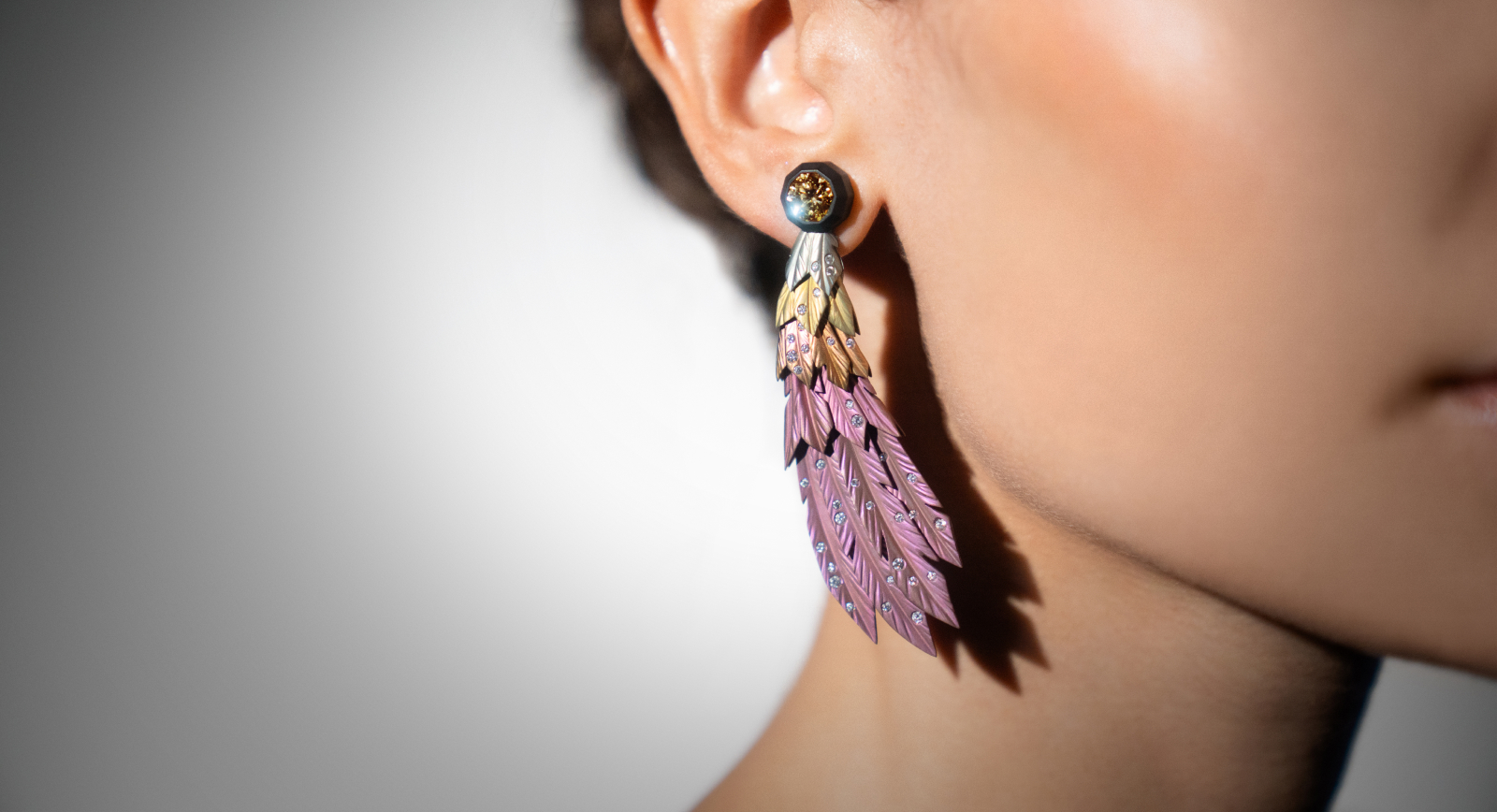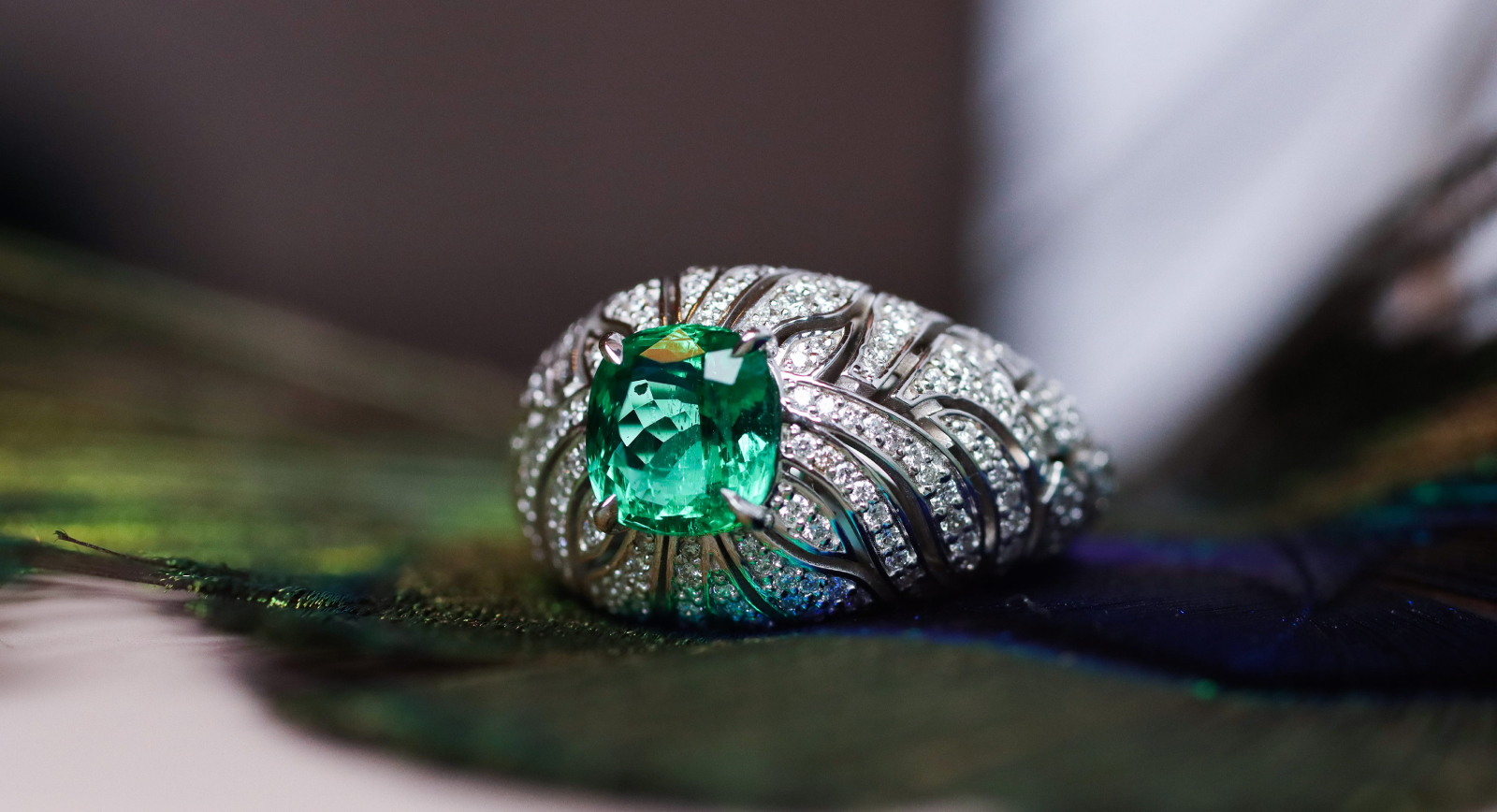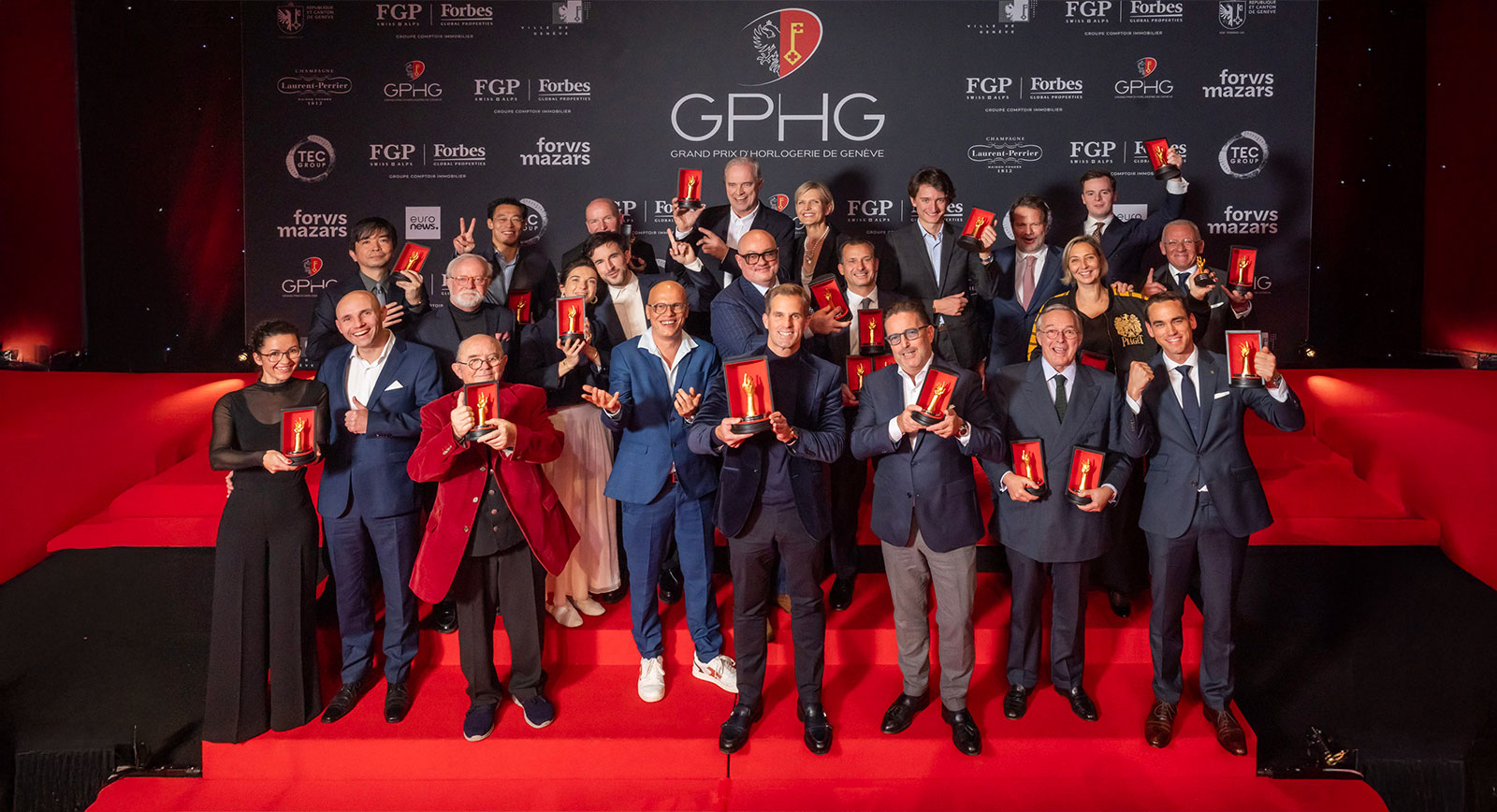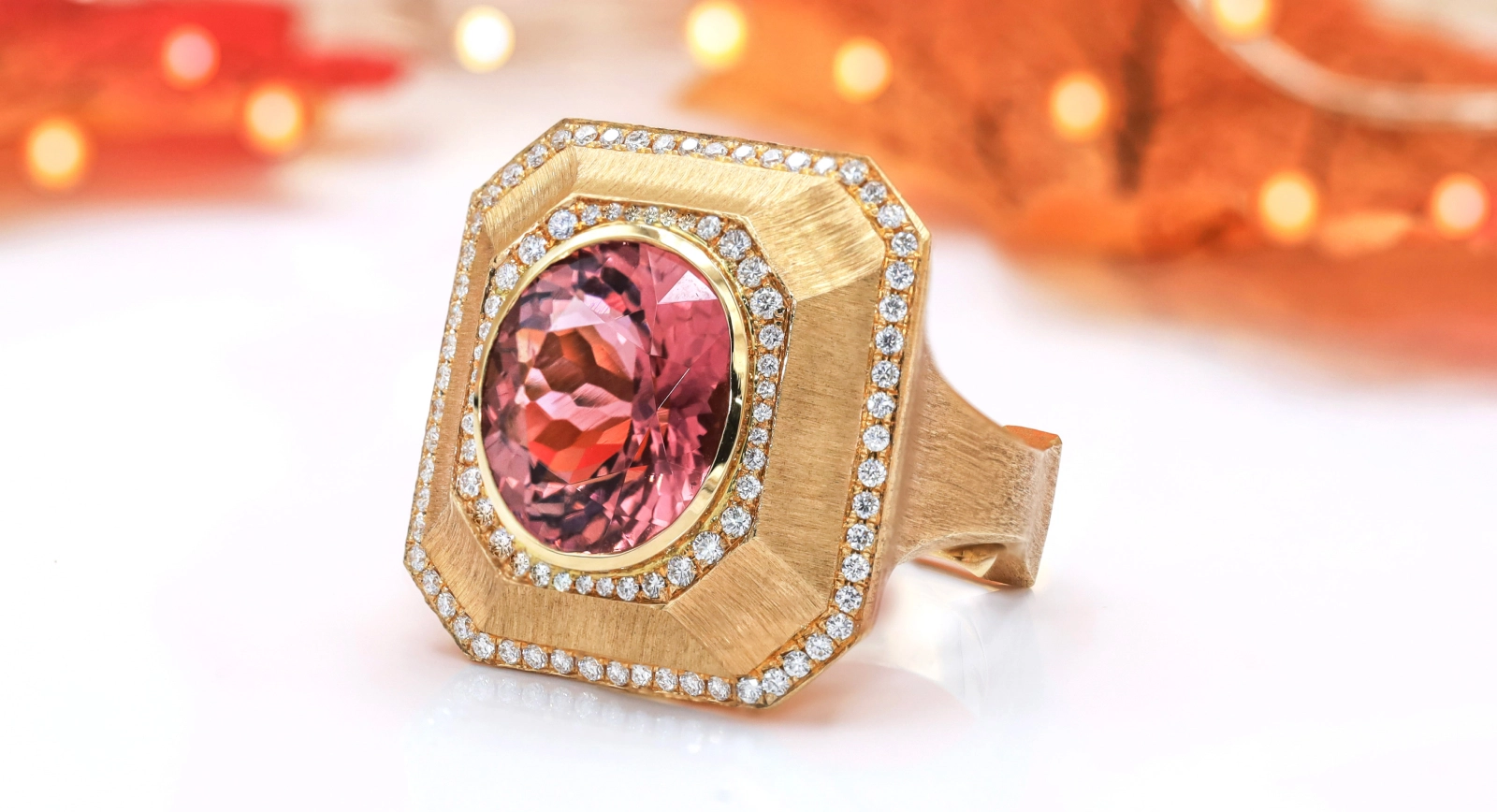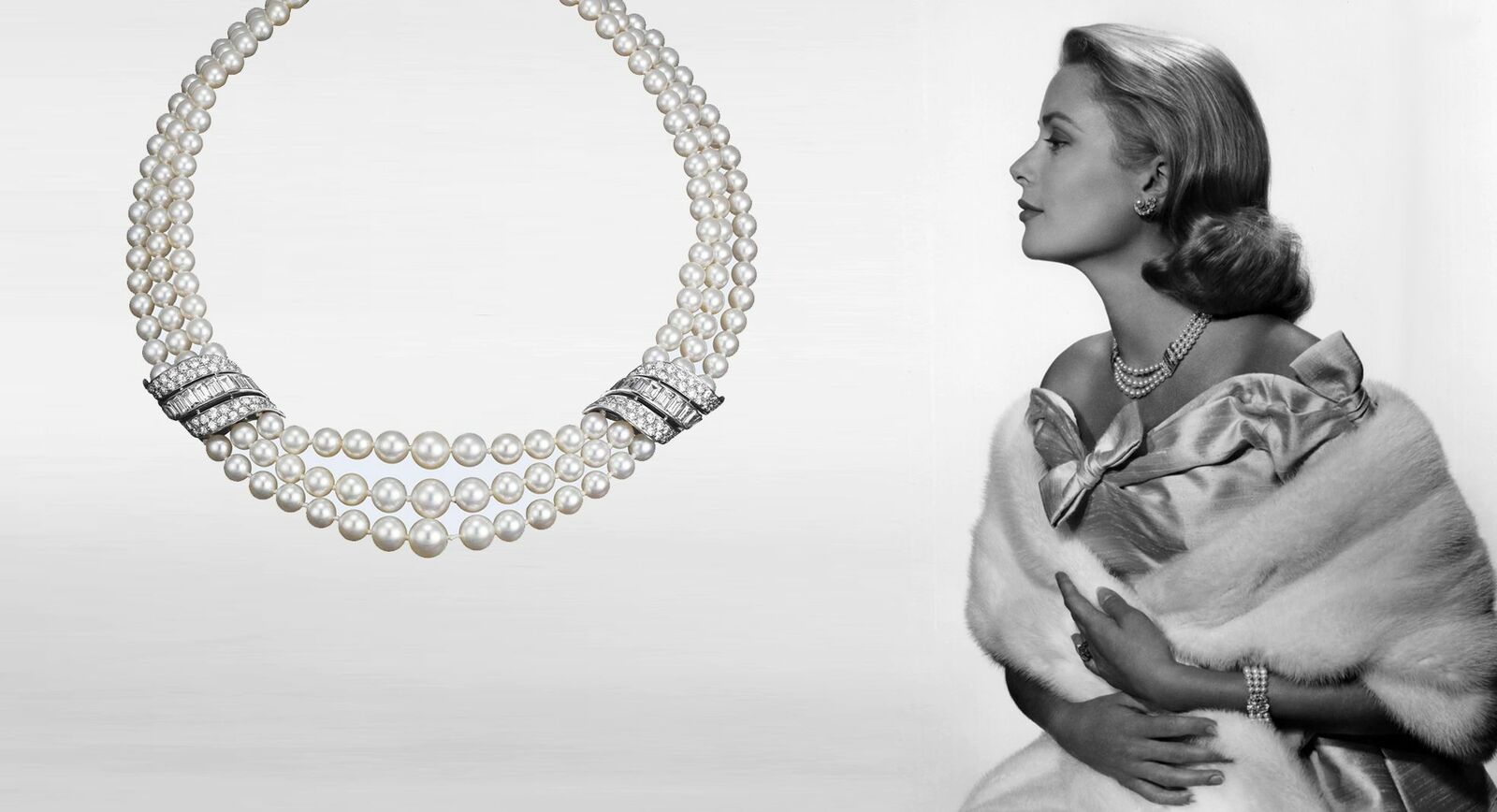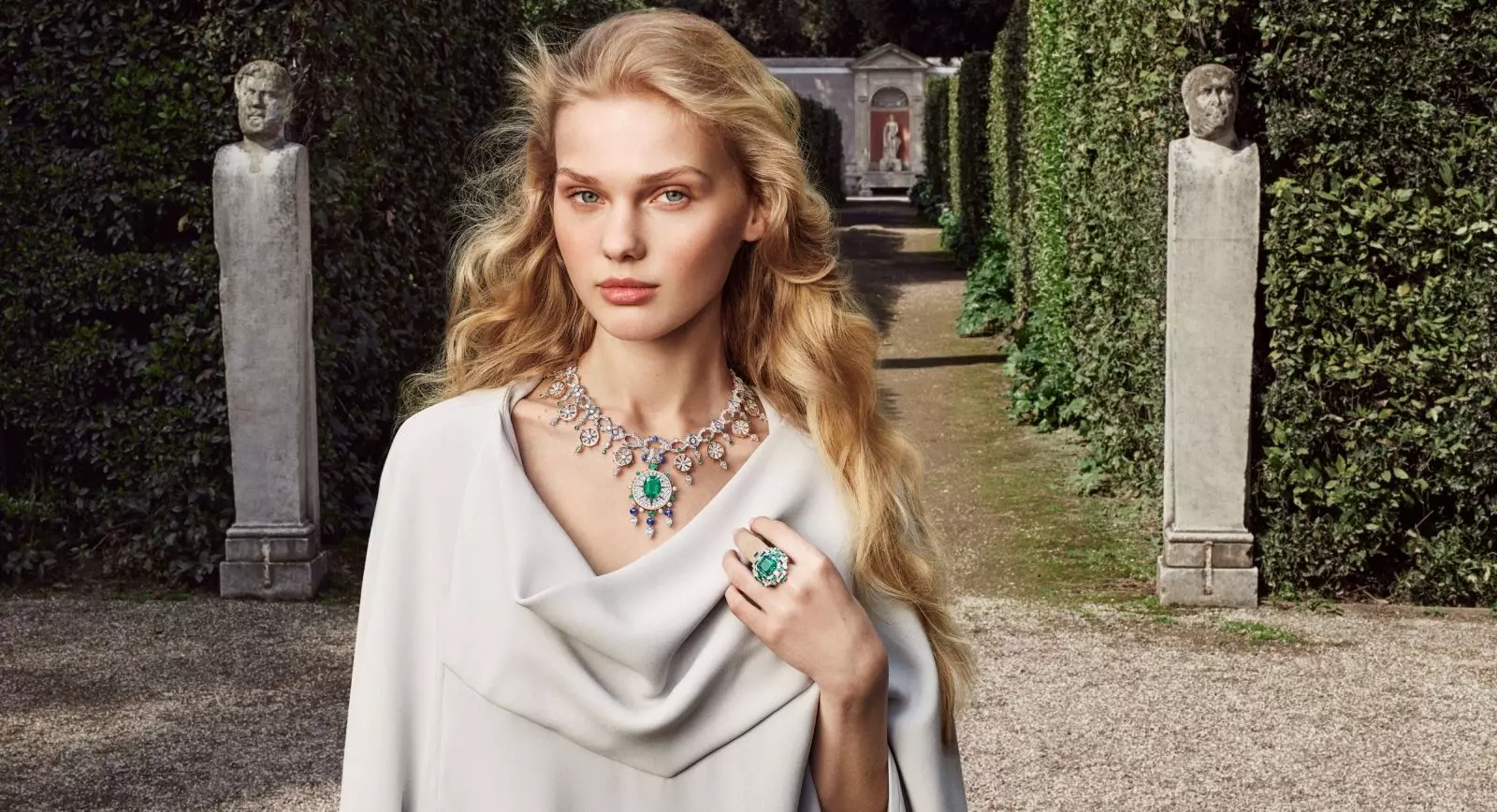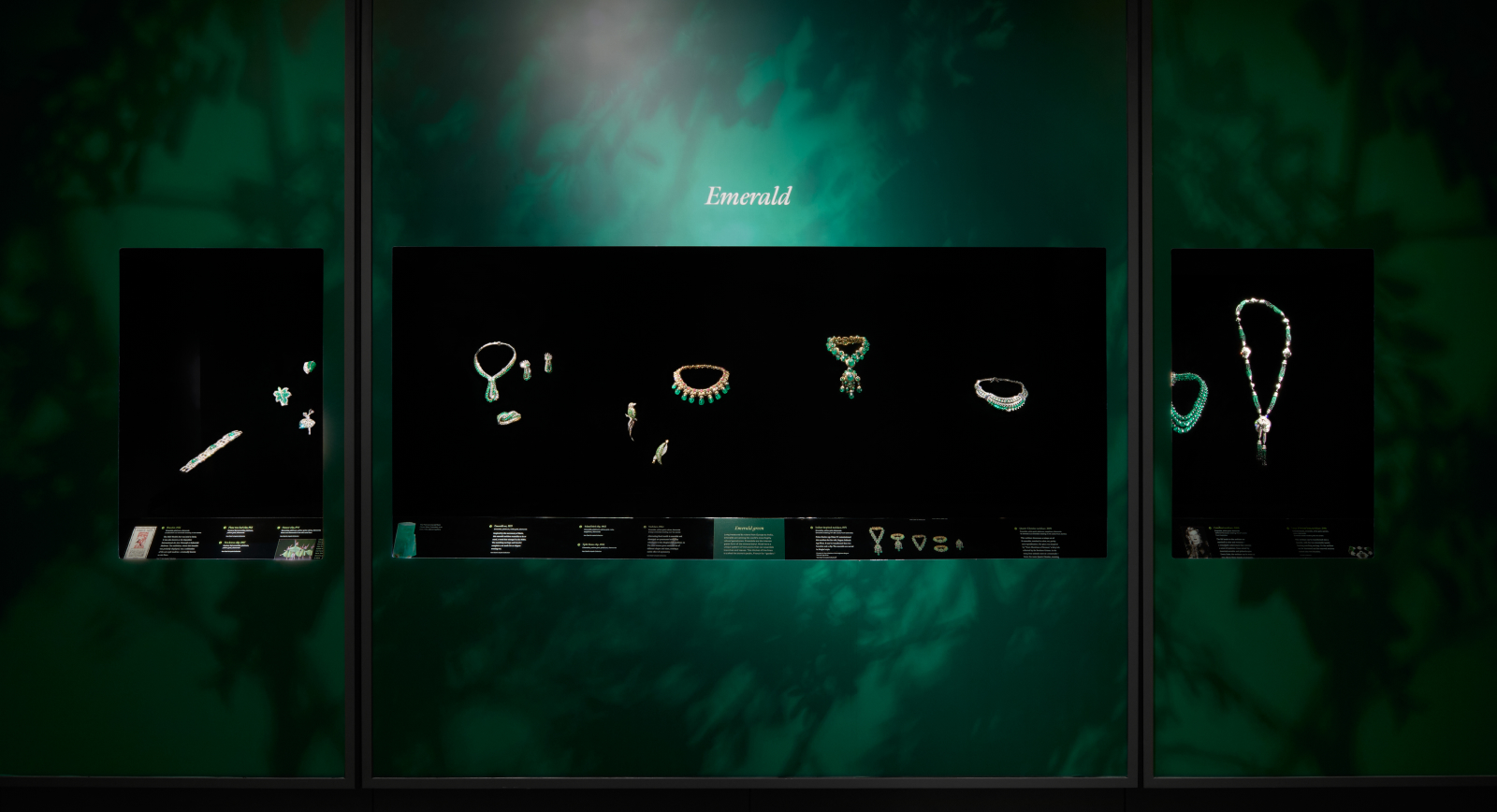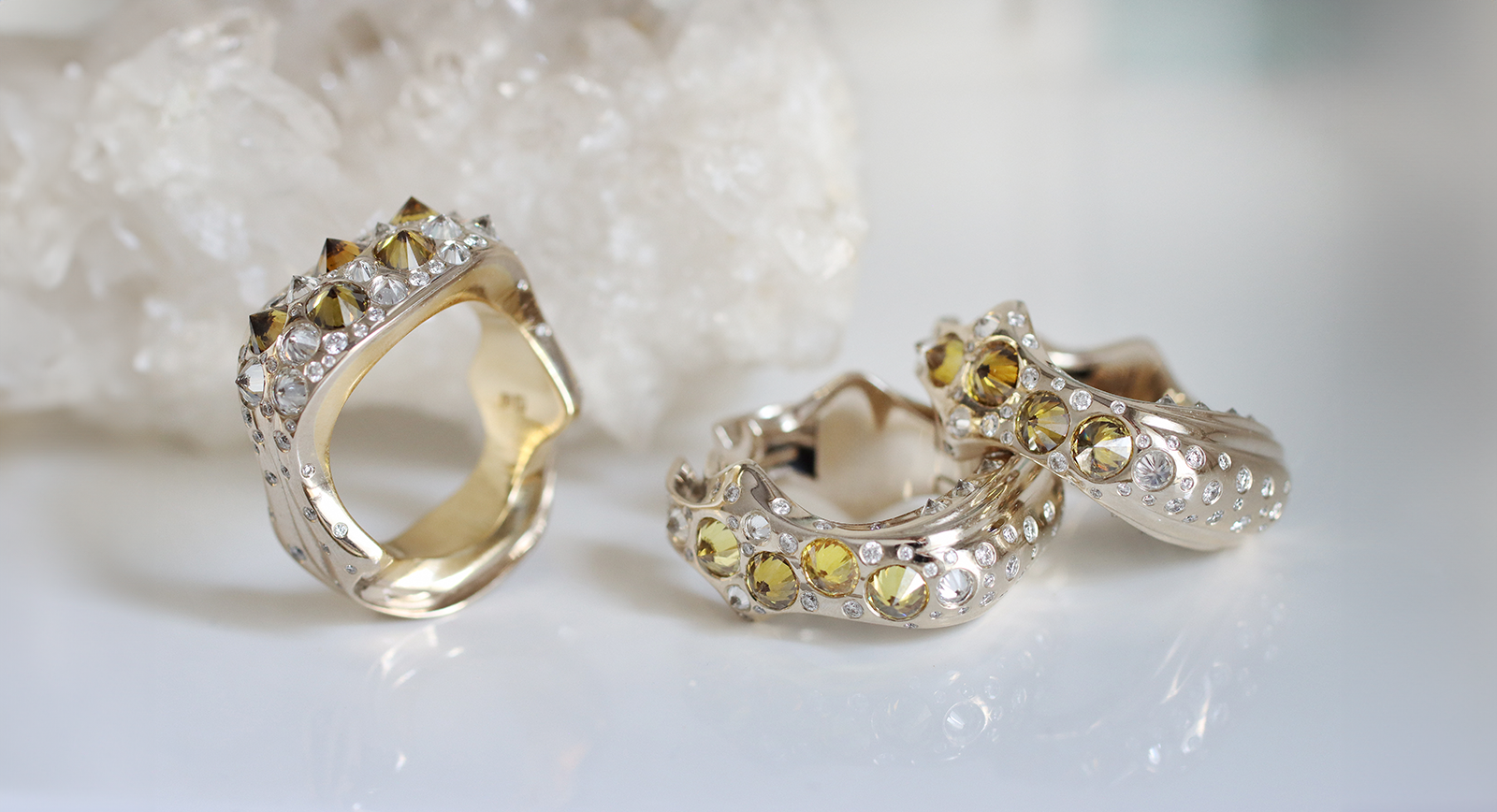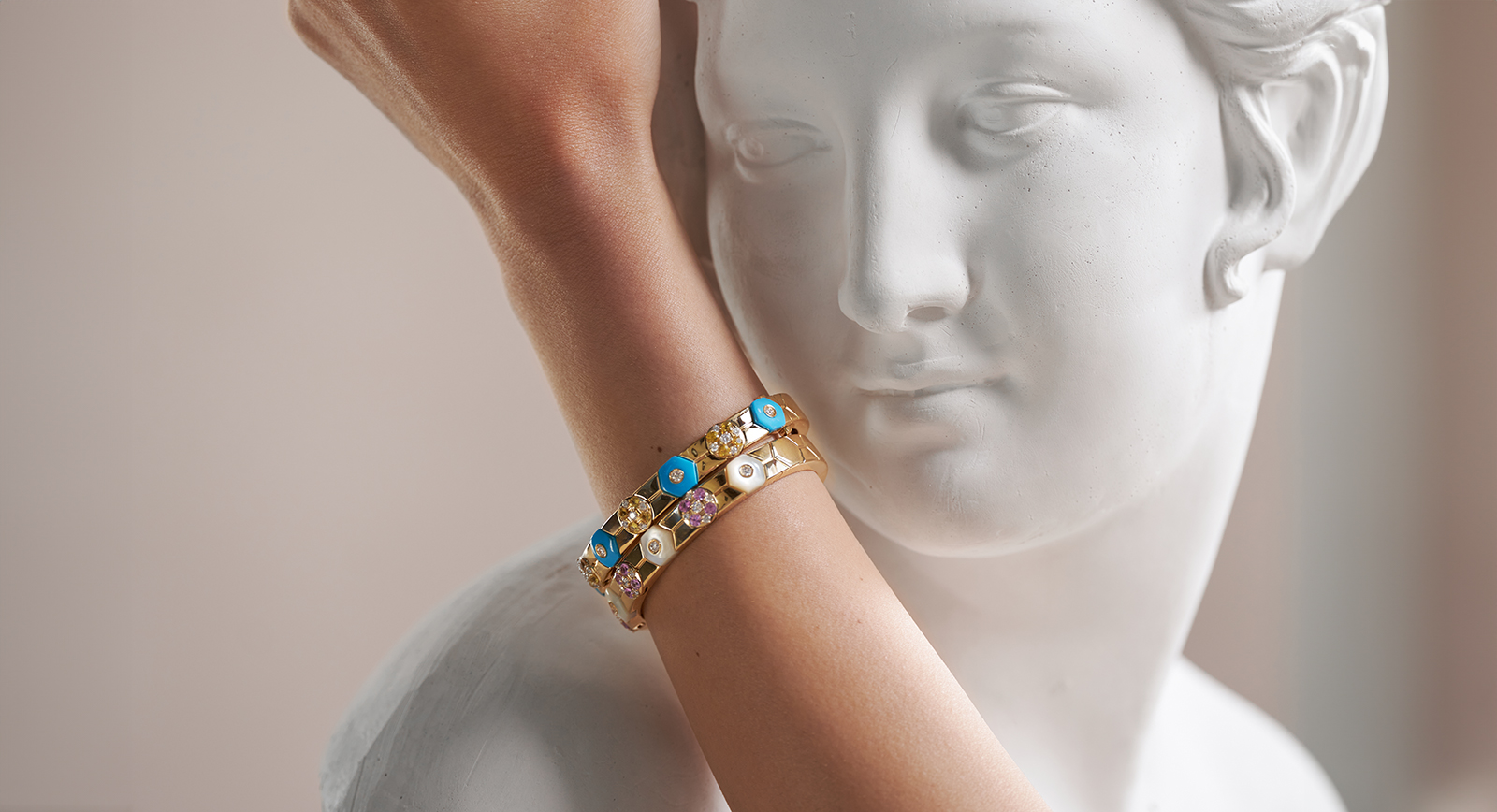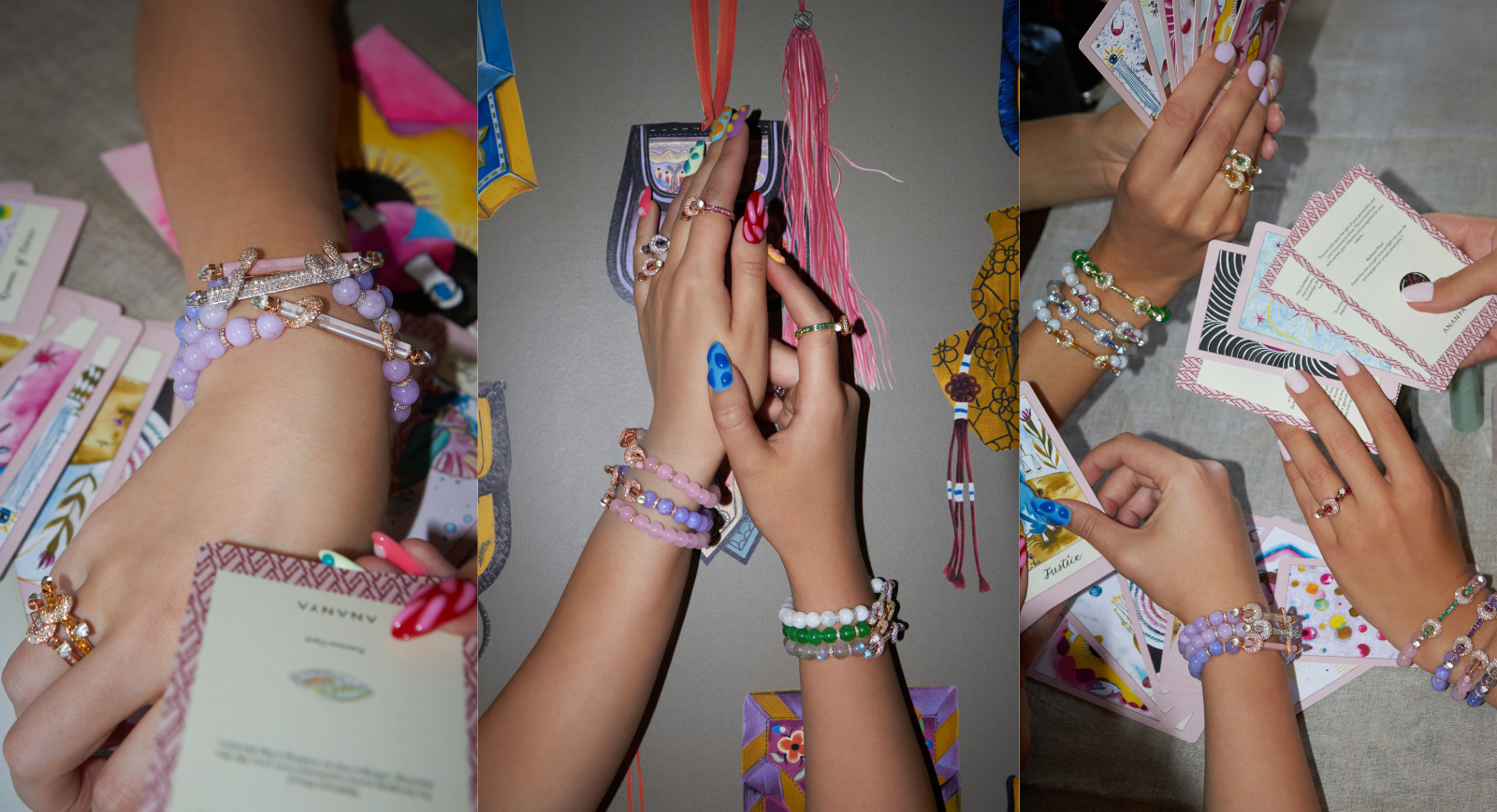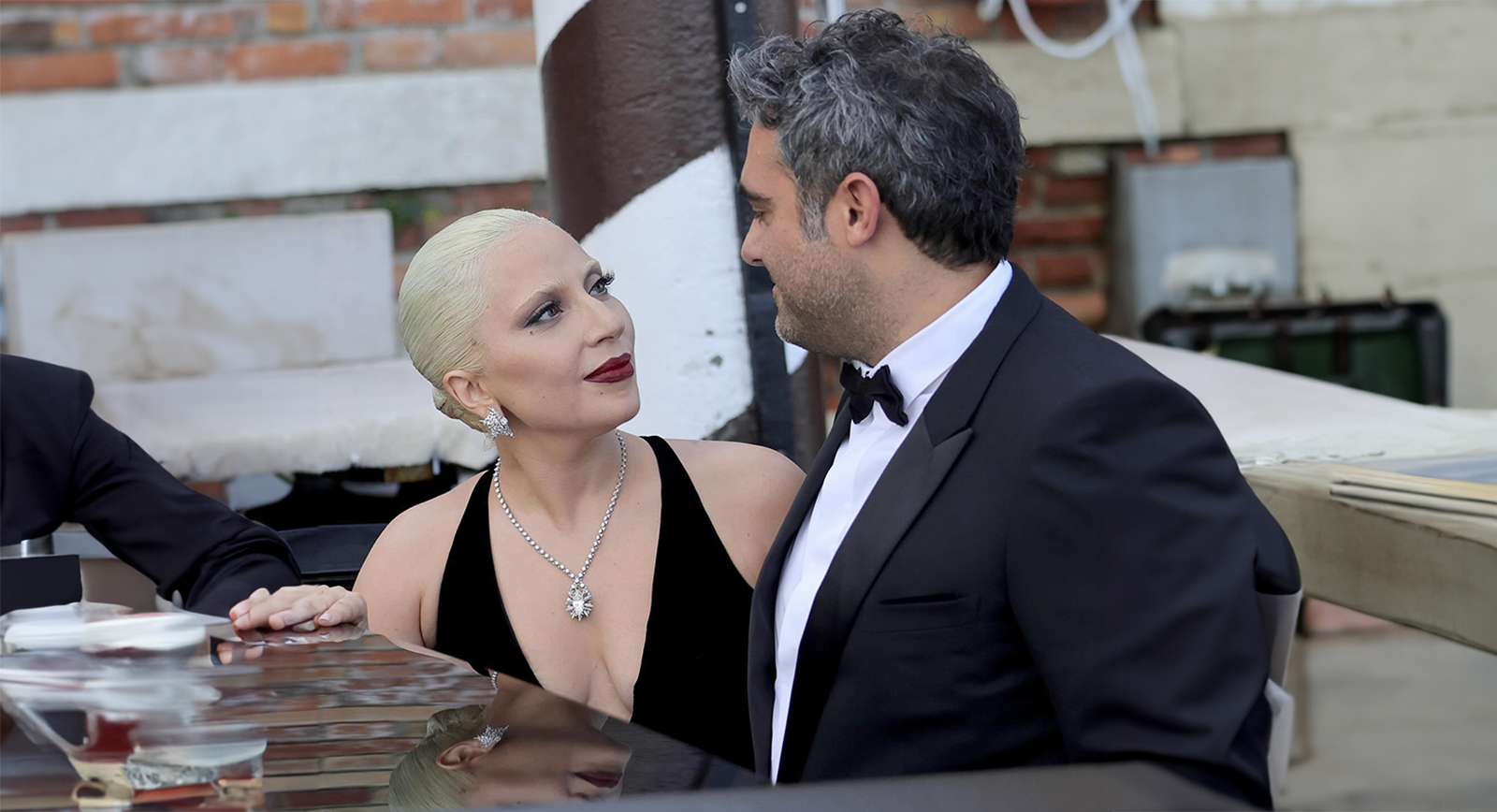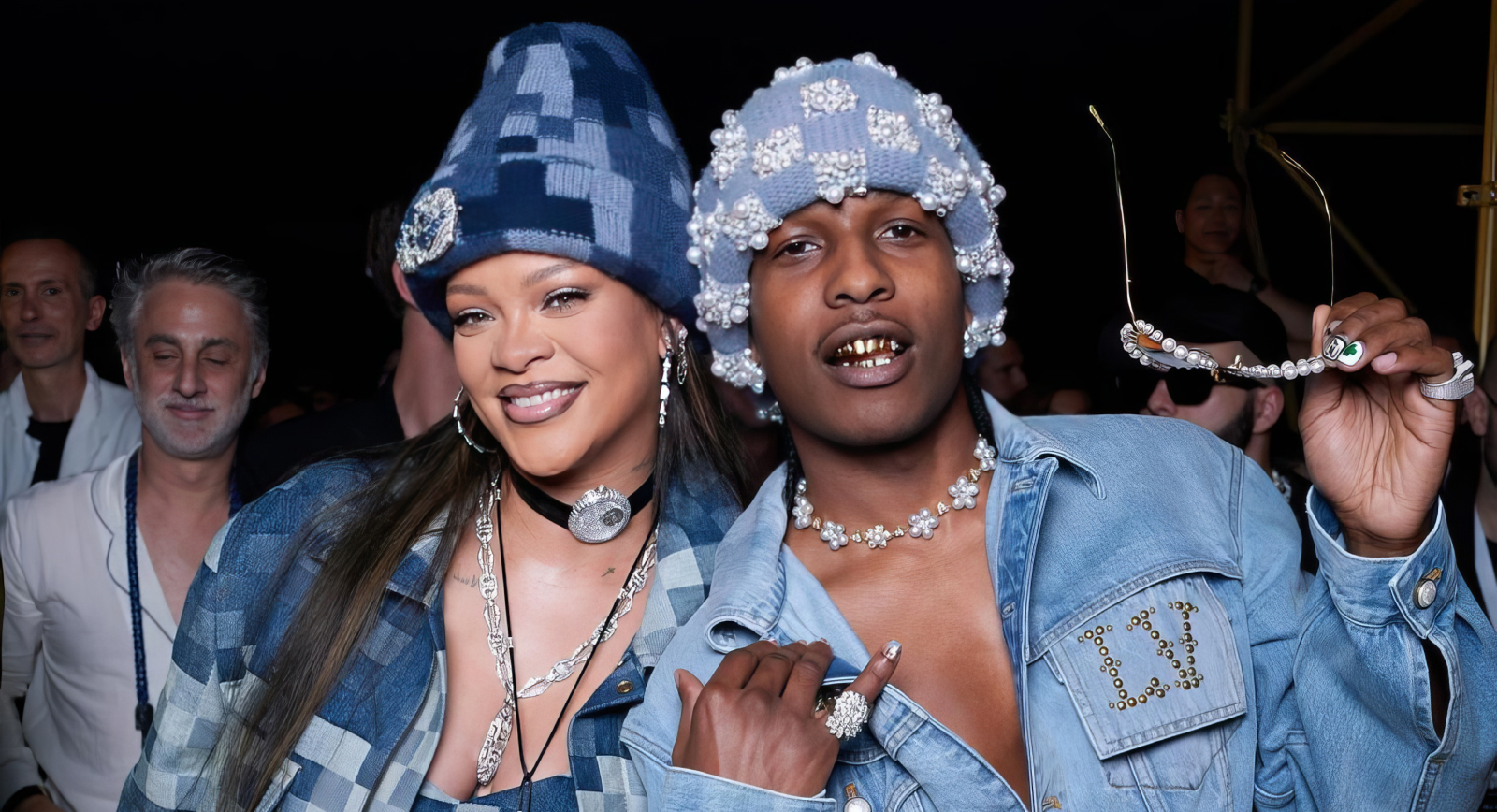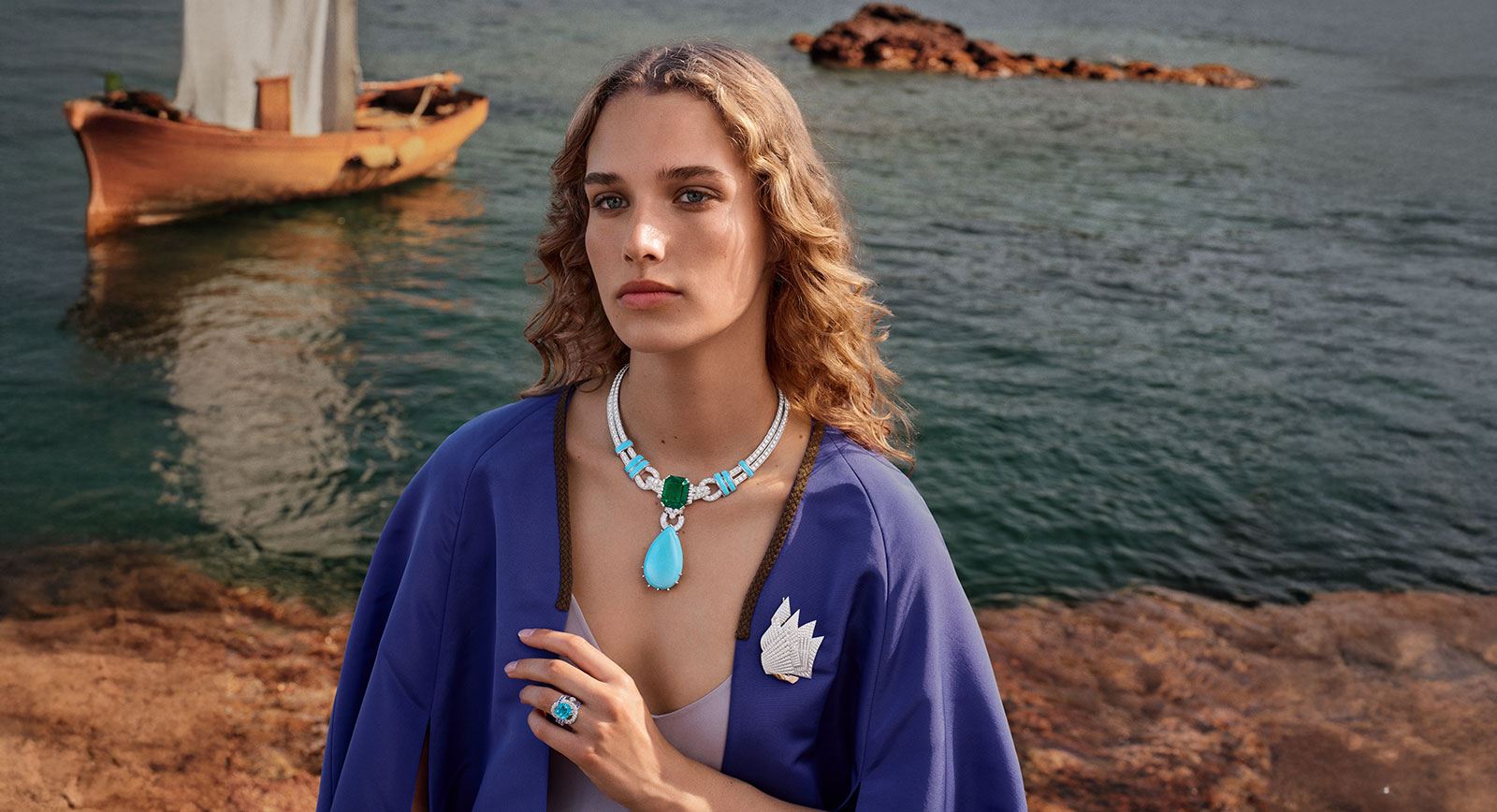
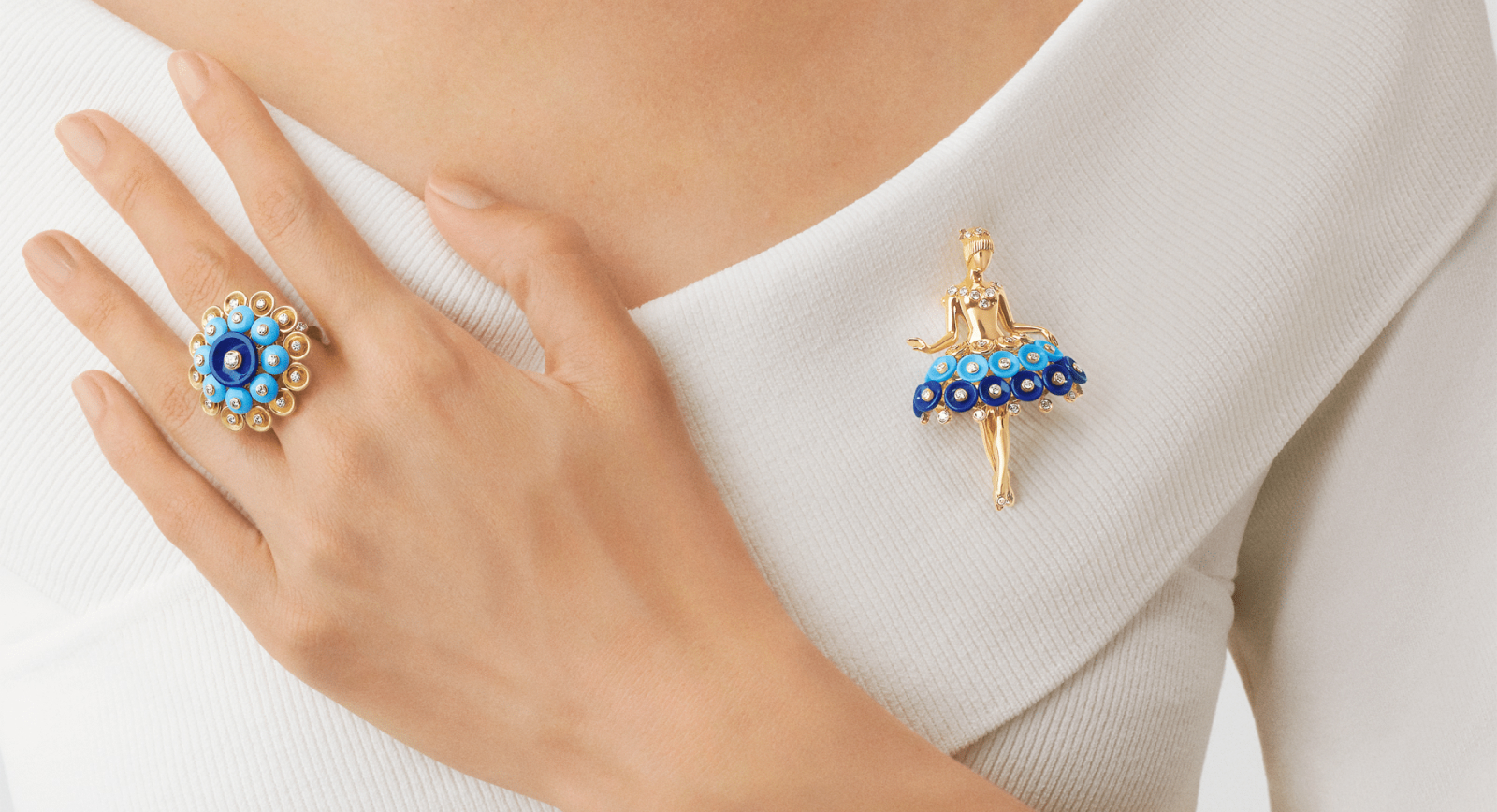
Modern Jewellery Icons #11: Van Cleef & Arpels’ Ballerinas
Graceful, playful and forever collectable, these lifelike bejewelled figures have danced their way into the hearts of jewellery connoisseurs since the 1940s. Here, Rachael Taylor considers the history of Van Cleef & Arpels’ famous brooches, which started with Louis Arpel’s love for ballet and a need for hope in the darkest of hours.
Few names in haute joaillerie conjure as much enchantment as Van Cleef & Arpels. The French jeweller is known for its love of whimsy and fairytales, and one of the Maison’s most romantic icons is the Ballerina brooch.

Van Cleef & Arpels Archive visual of ballerinas
Ballerina Varieties
It is not known how many ballerinas Van Cleef & Arpels has created, but the figure is estimated to be in the hundreds, making this jewellery icon a rare find. These precious brooches capture a dancer mid pose, with her form often adorned with diamonds or richly coloured gemstones, such as turquoise, lapis lazuli, emeralds and rubies. The gems and colours not only add depth and vibrancy but also bring a lifelike quality to the pieces by creating texture and movement. Rarer still are the dancers who shy away from a heavy use of stones, instead relying on highly polished or textured gold (sometimes formed into a mesh) for their tutus. These more modest dancers have been created to cater to those who appreciate precious metals more than fine gems.
Ballerina Brooches History
Van Cleef & Arpels’ connection to the ballet starts with Louis Arpels, who joined his family business in 1913 in Paris. Louis loved to watch ballet at the Opéra Garnier, a short walk from Van Cleef & Arpels’ Place Vendôme boutique. It was a passion shared by his nephew Claude Arpels, who would join him to watch the dancers perform, equally as enchanted as his uncle. When Louis moved to New York to establish Van Cleef & Arpels across the Atlantic, he took with him his deep admiration for dance. The first Van Cleef & Arpels store opened in New York in 1939, and Louis used it as a platform to jettison his creative vision – the ballerina brooch. To do so, he assembled a crack team.
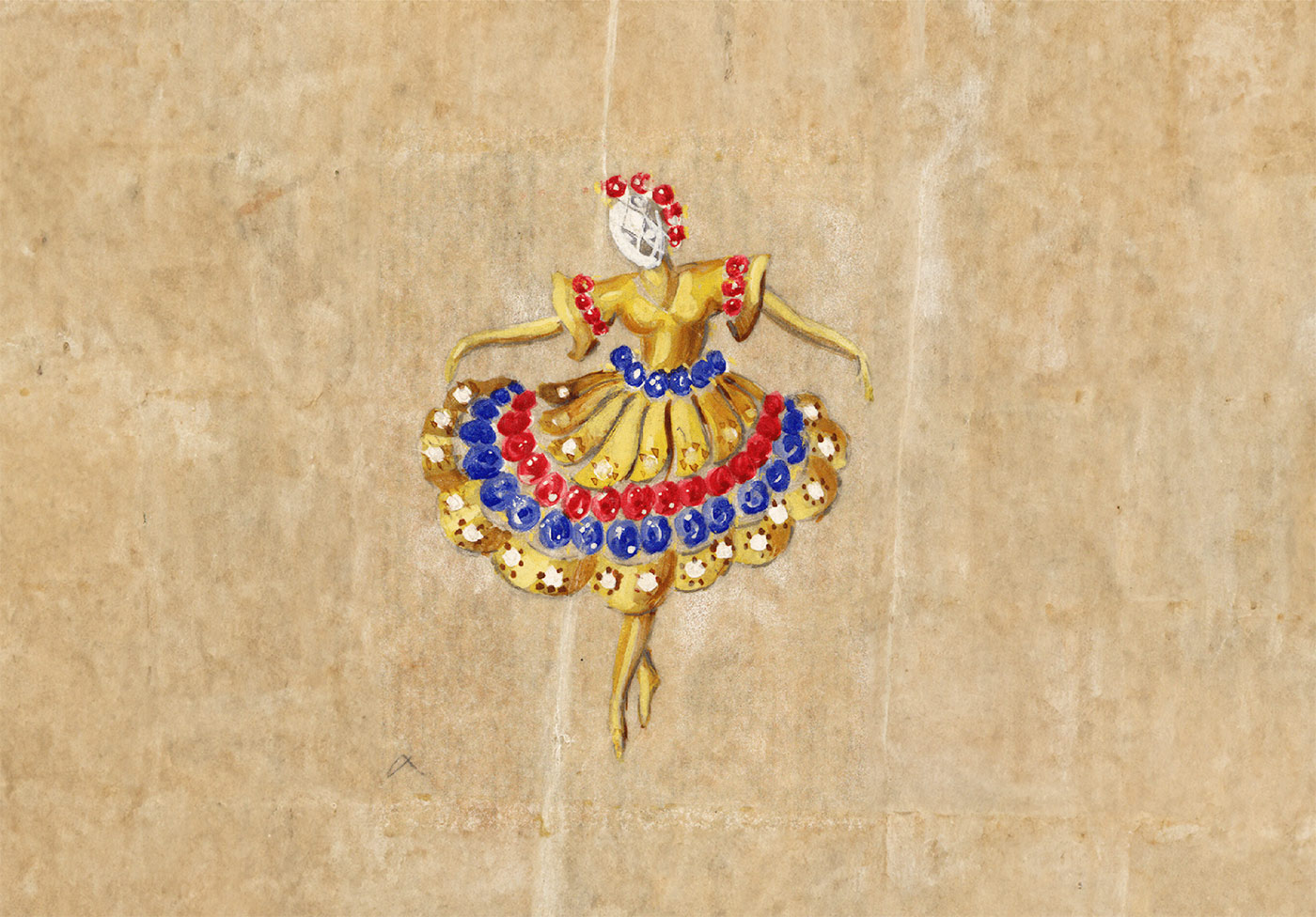
Van Cleef & Arpels Ballerina drawing circa 1945
First Ballerina Brooches
The first brooches were a collaboration between Van Cleef & Arpels designer Maurice Duvalet and John Rubel of jewellery manufacturer Rubel Freres; both of whom had emigrated from Paris to New York. The first brooches were completed in the early 1940s, and were elegant symbols of beauty and poise, with long-legged dancers on pointe, surrounded by flowing skirts or tutus set with gemstones. Each dancer was different, likely inspired by renowned stars such as Anna Pavlova and earlier icons like Marie Anne de Cupis de Camargo, with its own outfit, pose, and personality. The unifying feature is the use of a rose-cut diamond for the face.
Legend has it that the rose-cut diamonds that Van Cleef & Arpels had acquired for the original Ballerina brooches had once been part of the Spanish Crown Jewels. While this has not been confirmed, what is true is that the jeweller had plenty of these unusual diamond cuts to lavish upon its dancers at this time. The Ballerinas offered Van Cleef & Arpels customers some respite from the fear and upheaval caused by World War II, which raged on in the early 1940s. Through these jewels, Louis found a way to give his clients a taste of the escapism he so enjoyed whenever he watched ballet in a hushed theatre.
Real Dancers Embodied in Jewels
Often, the Ballerina brooches were inspired by real dancers. A publicity shot of legendary Russian dancer Anna Pavlova inspired a design with soft arms floating above a skirt made of rose-cut diamonds, rubies and emeralds. La Carmago, a Ballerina brooch designed in 1942, took its one-legged, open-armed pose from an 18th-century Nicolas Lancret painting of French dancer Marie Anne de Cupis de Camargo. The first Ballerina crafted in 1941 was based on a sketch John Rubel made in a Lower Eastside nightclub of a flamenco dancer, although she received no named credit.
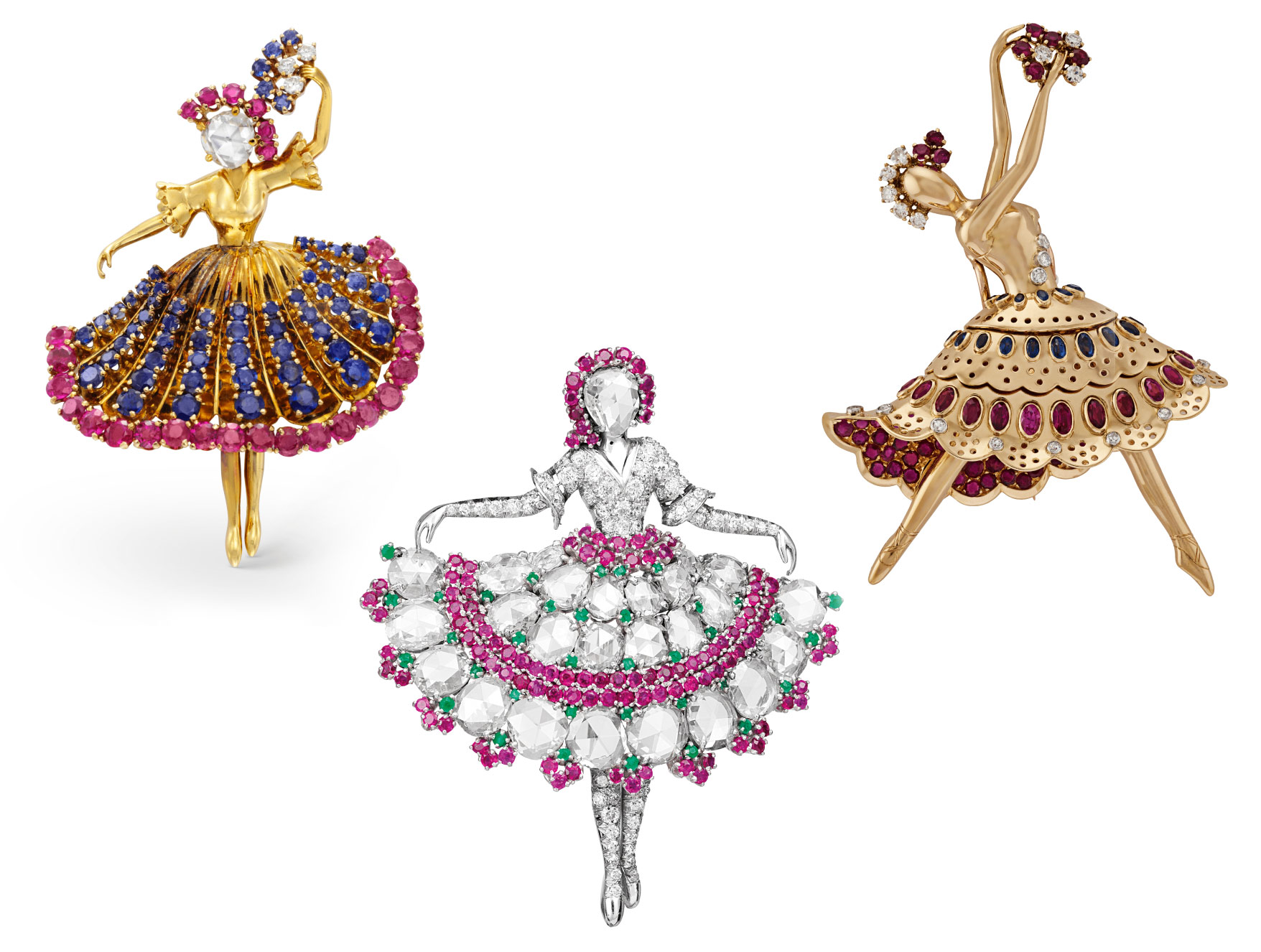
From left to right: Van Cleef & Arpels Ballerina clip from circa 1945, Mathilda ballerina clip with round and rose-cut diamonds, round rubies and round emeralds in white gold, and another ballerina circa 1945
Van Cleef & Arpels Ballerinas have always sought to celebrate cultural and creative differences rather than uniformity, which has led to a diverse dazzle of dancers. Some, such as the 1941 diamond, emerald and sapphire La Danseuse Espagnole brooch, are perfectly poised mid-pirouette, capturing the slender discipline and excellence of the dancer. Others are more relaxed, like the 2018 yellow gold and diamond Princess Danica pin, which shows a demure dancer with hands folded over her lap and her rose-cut-diamond head inquisitively cocked to one side. Over time, the collection has paid homage to many types of global dance, not just ballet. You will find Van Cleef & Arpels brooches that replicate Bhamakalapam, Hula, Manora, Kyomai, and more.
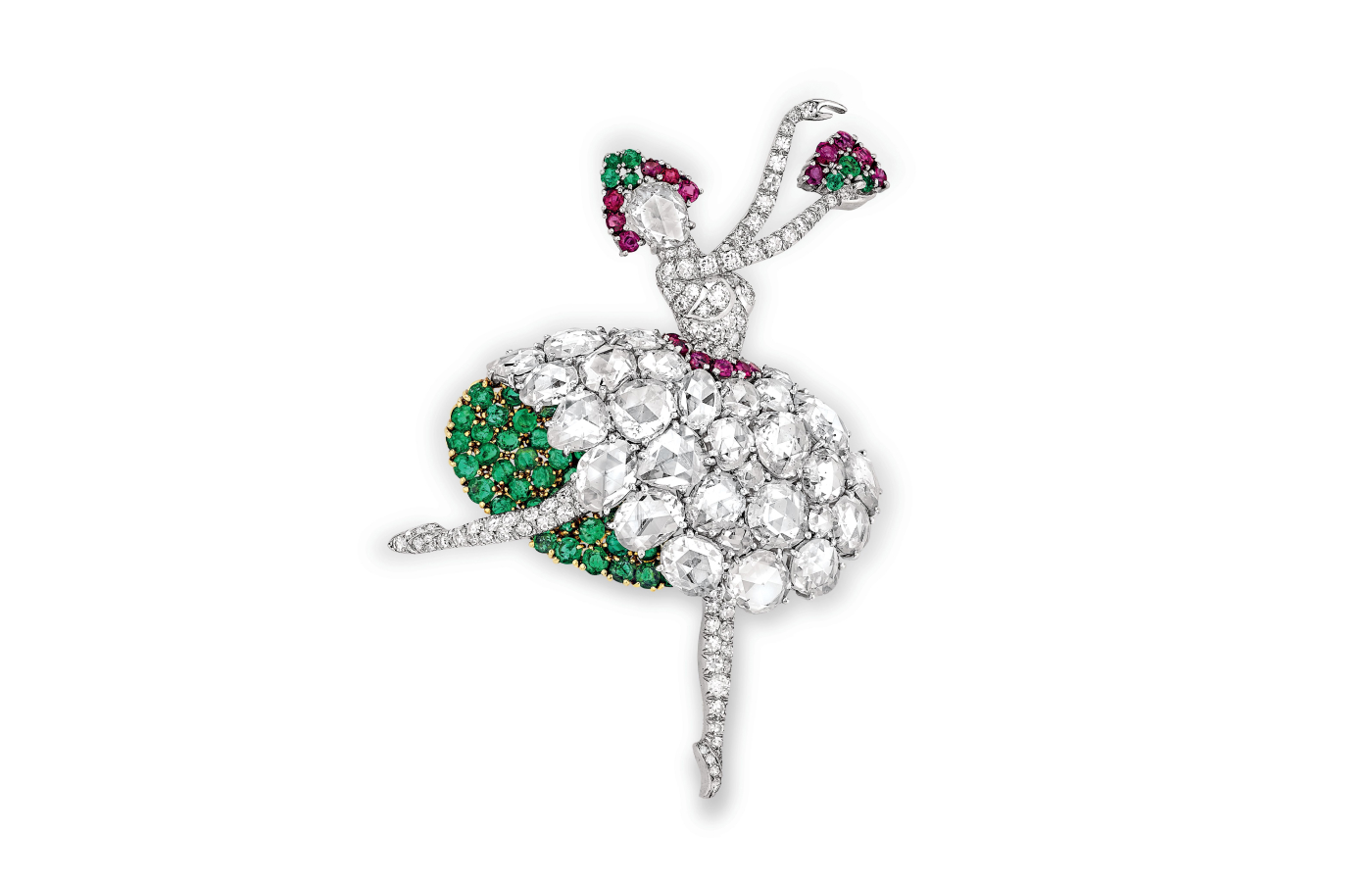
Van Cleef & Arpels Spanish ballerina clip 1941 with rubies, emeralds and diamonds in platinum and gold from the Van Cleef & Arpels Collection
Colour in the 1950s and 1960s
In the 1950s and 1960s, Ballerina pins were characterised by a wider use of colour, reflecting the burgeoning prosperity and evolving tastes of the post-war period. Some of these designs are even a little risqué – such as a 1952 Ballerina clip that shows what appears to be a topless dancer spreading out a turquoise cabochon and ruby skirt. During this time, Van Cleef & Arpels became even more closely linked to the ballet. Whether ballet-mad Claude Arpels suggested it to choreographer George Balanchine or Balanchine was inspired by walking past Van Cleef & Arpels’ Fifth Avenue store (reports differ), the idea emerged of a collaborative ballet inspired by jewels. It was titled Jewels and split into three acts, each inspired by a gemstone and set to music by a different composer. Gabriel Fauré scored the music for Emeralds, Igor Stravinsky for Rubies, and Pyotr Ilyich Tchaikovsky for Diamonds.
Van Cleef & Arpels stopped producing Ballerina brooches by the end of the 1960s, but they were reintroduced in the 2000s. In 2007, the brand launched its Ballet Précieux High Jewelry collection. It was inspired by the ballet Jewels and featured clips set with rubies, emeralds and diamonds as a reference to the three acts. It followed this in 2018 with the launch of 12 new ballerinas inspired by the Twelve Dancing Princesses fairytale by the Brothers Grimm.
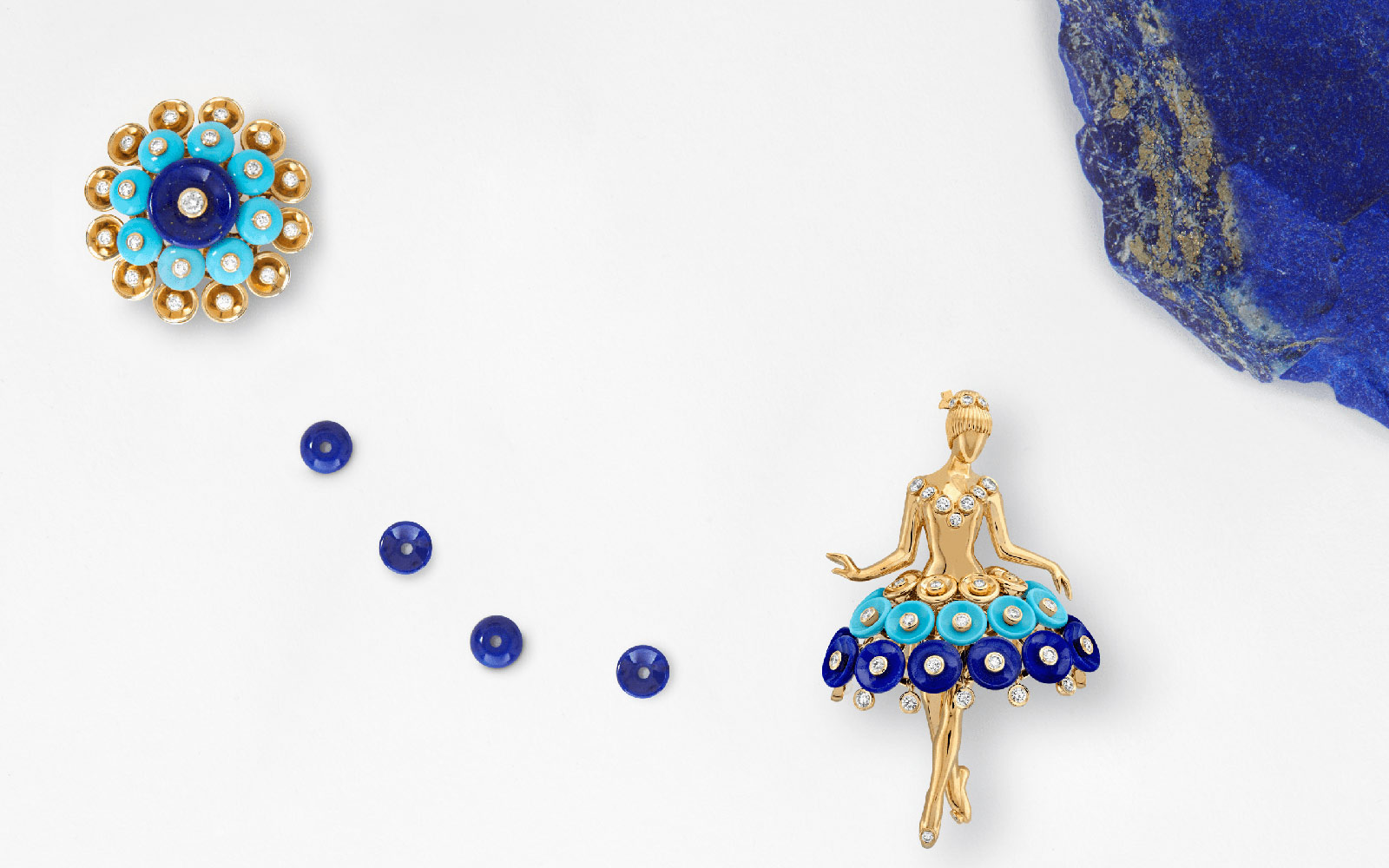
Van Cleef & Arpels Bouton d'or ballerina clip with diamonds, Lapis Lazuli and turquoise in gold
Van Cleef & Arpels Ballerina Brooches Today
Ballerinas have once again become a regular feature of Van Cleef & Arpels’ high jewellery collections, enchanting new generations with their gracefully euphoric beauty. In 2024, Van Cleef & Arpels extended the Ballet Précieux line with new dancers inspired by real dancers or characters in well-known ballets. Each dancer is distinctly different, but the troupe are united by their signature rose-cut diamond face.
To create just one of these dancers can take up to 400 hours of work, and calls on a wide range of skills, including carving, gem setting, lacquering, engraving, and mirror polishing. Such is the dedication to craftsmanship and artistry that these collectable pieces will hold their value. In 2024, a white gold and diamond clip with a mystery-set emerald skirt sold for more than seven times its estimate when it came up for auction at Christie’s, fetching HKD 7.3 million.

Van Cleef & Arpels Ballerina clip with emeralds and diamonds in white gold
It would seem that these precious ballerinas are still holding centre stage more than 80 years after they first danced into the hearts of Van Cleef & Arpels collectors, and we are certainly looking forward to the next act.

WORDS
Rachael Taylor Rachael is a British freelance jewellery journalist and regular contributor to a wealth of titles across the globe including The Financial Times, The Telegraph, The Independent, Condé Nast, Retail Jeweller, Katerina Perez and Rapaport, at which she is currently acting editor. Rachael is a sought-after speaker, industry consultant and judge at prestigious jewellery competitions including the UK Jewellery Awards and The Goldsmiths’ Craft and Design Council Awards. She is also the author of two books on jewellery, The Story Behind the Style: Cartier and The Story Behind the Style: Tiffany&Co.
Related Articles
Designer Gifts: The Latest Men’s Jewellery for the Label Lover in Your Life
2024 has been the year that men's jewellery really got into its stride, shedding its traditional image, embracing innovation, and emerging as a bold and brilliant category in its own right.
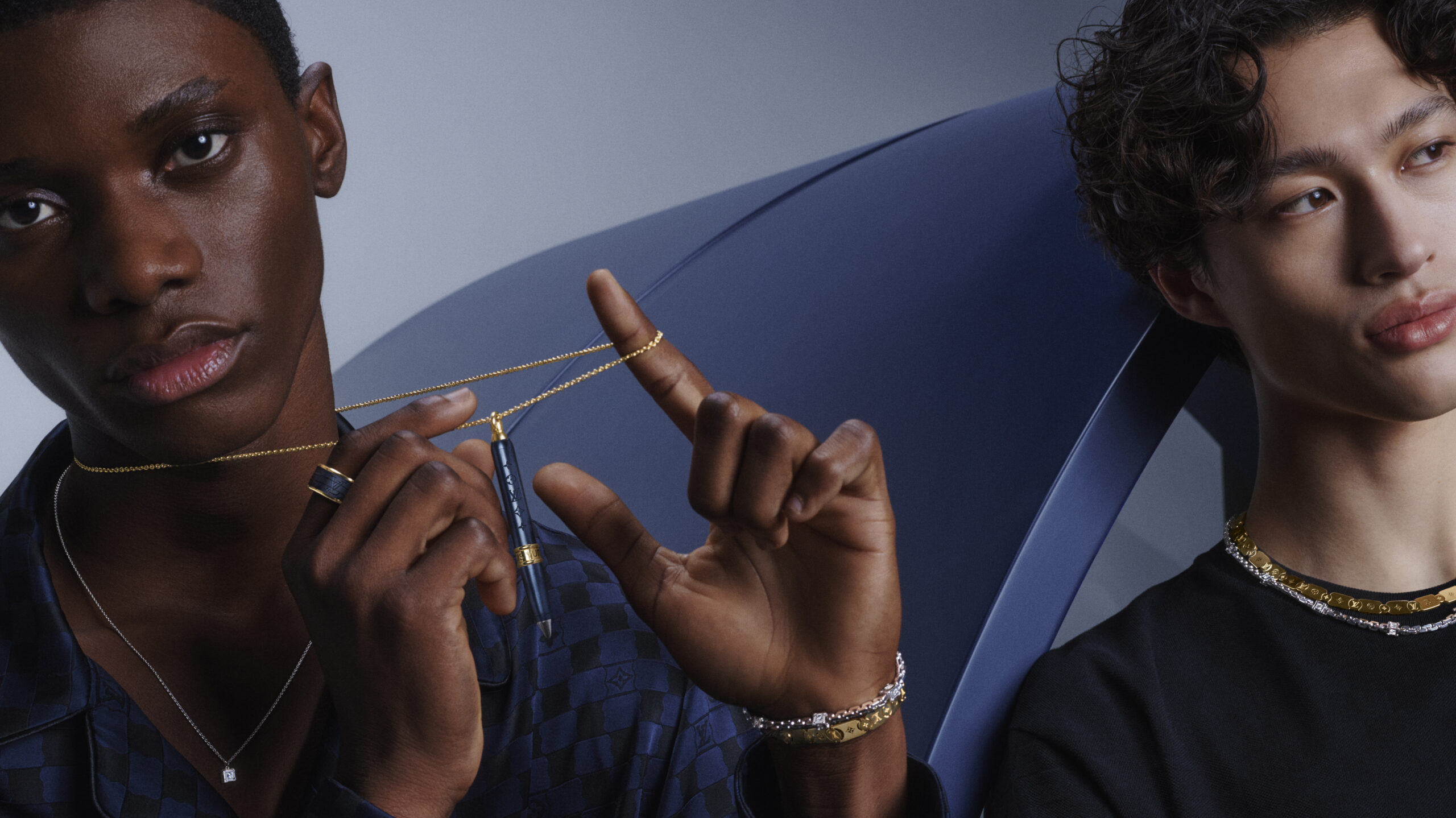
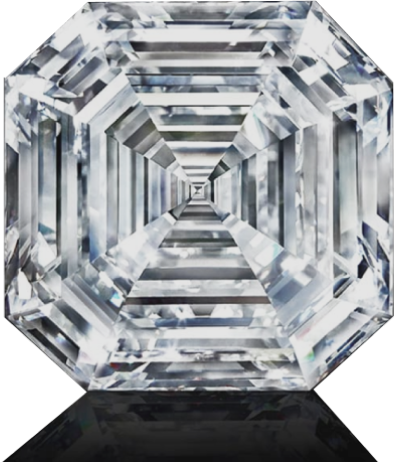
Latest Stories
Add articles and images to your favourites. Just
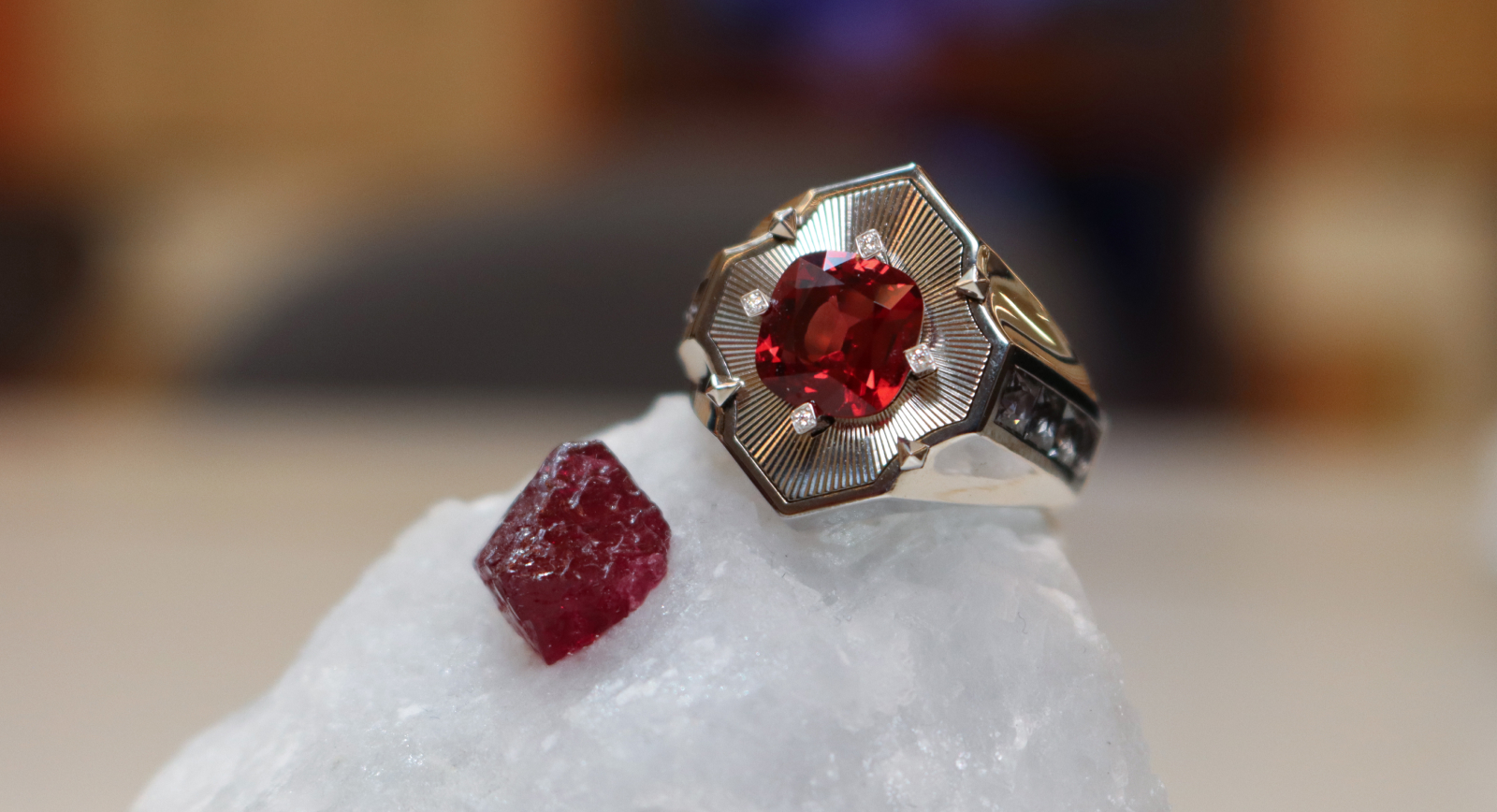
Jeweller of the Month:MADLY Gems
Singaporean brand celebrates 10-year anniversary
Jewels Katerina Perez Loves
Continue Reading
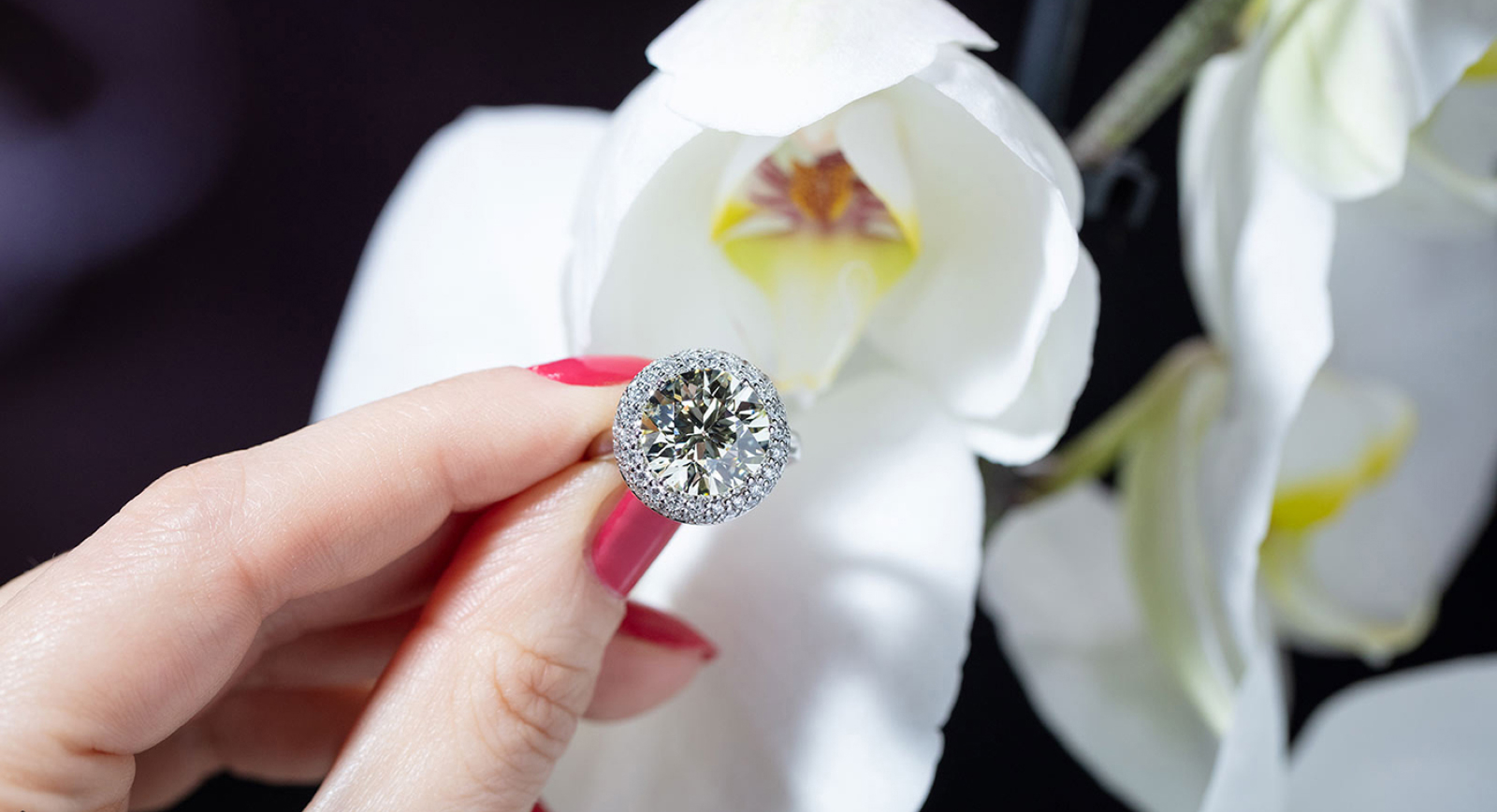
Ask Katerina:Diamond Jewellery Styling Tips for Modern Dressing
Here are some of the answers I gave during the presentation to aid your jewellery dressing…
Brand Focus:Van Cleef & Arpels
Jewellery Insights straight to your inbox
